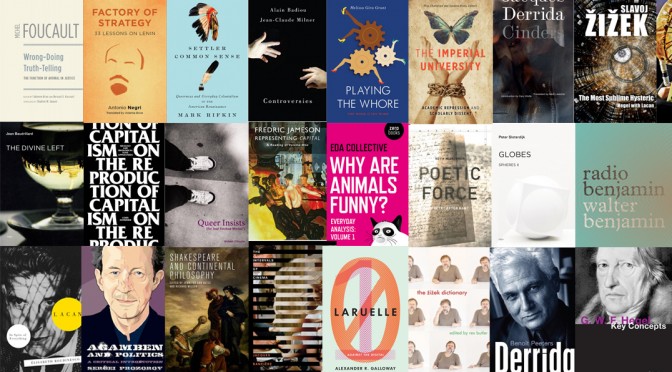
Pamet ide dalje... ne primjećujući da ljudi više nema...
www.critical-theory.com/88-critical-theory-books-that-came-out-in-2014/6/
#1 Wrong-Doing, Truth-Telling
by Michel Foucault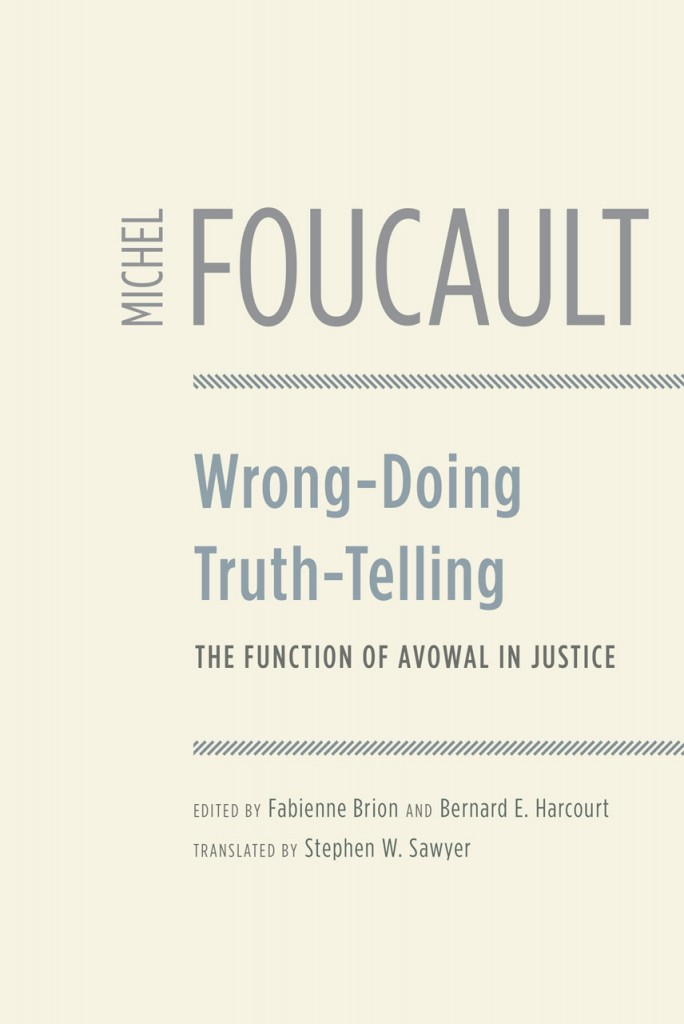
“Three years before his death, Michel Foucault delivered a series of lectures at the Catholic University of Louvain that until recently remained almost unknown. These lectures—which focus on the role of avowal, or confession, in the determination of truth and justice—provide the missing link between Foucault’s early work on madness, delinquency, and sexuality and his later explorations of subjectivity in Greek and Roman antiquity.
Ranging broadly from Homer to the twentieth century, Foucault
traces the early use of truth-telling in ancient Greece and follows it
through to practices of self-examination in monastic times. By the
nineteenth century, the avowal of wrongdoing was no longer sufficient to
satisfy the call for justice; there remained the question of who the
“criminal” was and what formative factors contributed to his
wrong-doing. The call for psychiatric expertise marked the birth of the
discipline of psychiatry in the nineteenth and twentieth centuries as
well as its widespread recognition as the foundation of criminology and
modern criminal justice.
Buy it here.
#2 On The Reproduction of Capitalism
By Louis Althusser.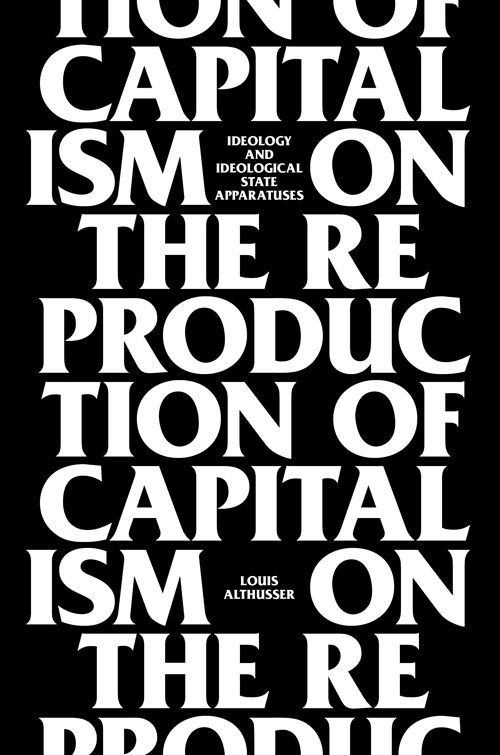
“Louis Althusser’s renowned short text ‘Ideology and Ideological State Apparatuses’ radically transformed the concept of the subject, the understanding of the state and even the very frameworks of cultural, political and literary theory. The text has influenced thinkers such as Judith Butler, Ernesto Laclau and Slavoj Žižek.
The piece is, in fact, an extract from a much longer book, On the Reproduction of Capitalism, until now unavailable in English. Its publication makes possible a reappraisal of seminal Althusserian texts already available in English, their place in Althusser’s oeuvre and the relevance of his ideas for contemporary theory. On the Reproduction of Capitalism develops Althusser’s conception of historical materialism, outlining the conditions of reproduction in capitalist society and the revolutionary struggle for its overthrow.”
Buy it here.
#3 Out of Time
By Lynne Segal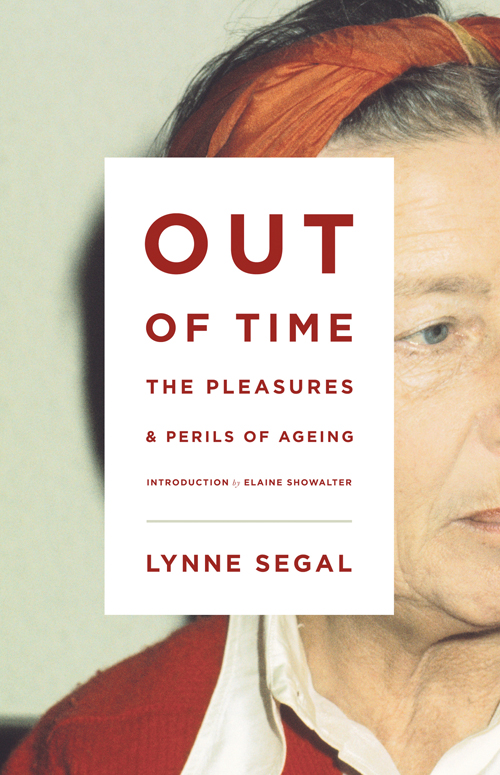
“In Out of Time, leading thinker Lynne Segal examines her life and surveys the work and lives of other writers and artists to explore the pleasures and perils of growing old. Following in the footsteps of Simone de Beauvoir—who in her mid-fifties mourned ‘never again!’ and yet was energetically writing in her sixties and seventies—Segal mixes memoir, literature and polemic to examine the inevitable consequences of staying alive.
Who is that stranger who stares back from the mirror? What happens to ambition and sexuality? As millions of baby boomers approach their sixth or seventh decade, these questions are becoming increasingly urgent. Must the old always be in conflict with the young? How can we deal with the inevitability of loss and find victory in survival?”
Buy it here.
#4 Event
By Slavoj Zizek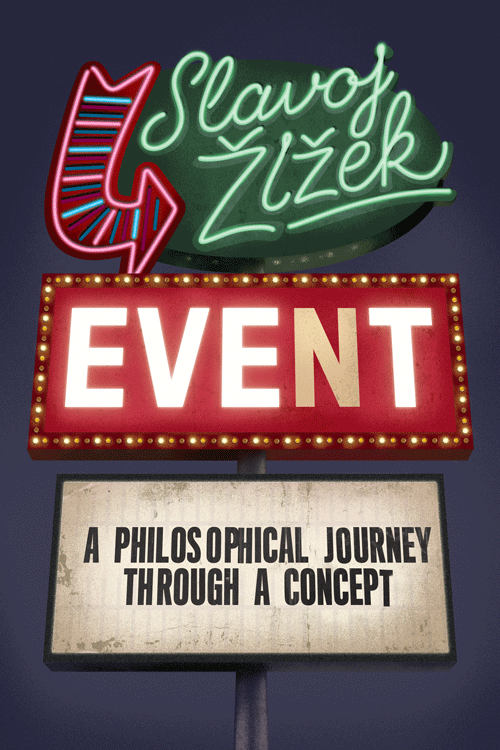
“A tsunami killed more than 200,000 people in Indonesia!” “The people have won! The dictator has run away!” “How is something as beautiful as Beethoven’s last piano sonata even possible?”
All these statements refer to what some of us would consider an event . . . An “Event” can refer to a devastating natural disaster or to the latest celebrity scandal, the triumph of the people or a brutal political change, an intense experience of a work of art or an intimate decision . . . An event is the effect that seems to exceed its causes—and the space of an event is the distance of an effect from its causes.
But, asks Slavoj Zizek, does everything that exists have to be grounded in sufficient reasons? Or are there things that somehow happen out of nowhere? How can philosophy help us to determine what an event is and how it is possible?”
Buy it here.
#5 Factory of Strategy: Thirty-Tree Lessons on Lenin
By Antonion Negri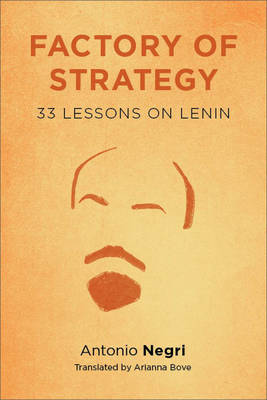
“Factory of Strategy is the last of Antonio Negri’s major political works to be translated into English. Rigorous and accessible, it is both a systematic inquiry into the development of Lenin’s thought and an encapsulation of a critical shift in Negri’s theoretical trajectory.
Lenin is the only prominent politician of the modern era to seriously question the “withering away” and “extinction” of the state, and like Marx, he recognized the link between capitalism and modern sovereignty and the need to destroy capitalism and reconfigure the state. Negri refrains from portraying Lenin as a ferocious dictator enforcing the proletariat’s reappropriation of wealth, nor does he depict him as a mere military tool of a vanguard opposed to the Ancien Régime. Negri instead champions Leninism’s ability to adapt to different working-class configurations in Russia, China, Latin America, and elsewhere. He argues that Lenin developed a new political figuration in and beyond modernity and an effective organization capable of absorbing different historical conditions. He ultimately urges readers to recognize the universal application of Leninism today and its potential to institutionally—not anarchically—dismantle centralized power.”
Buy it here.
#6 Head Cases
By Elaine Miller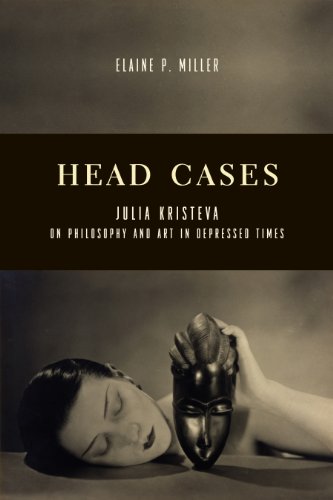
“While philosophy and psychoanalysis privilege language and conceptual distinctions and mistrust the image, the philosopher and psychoanalyst Julia Kristeva recognizes the power of art and the imagination to unblock important sources of meaning. She also appreciates the process through which creative acts counteract and transform feelings of violence and depression.
Reviewing Kristeva’s corpus, Elaine P. Miller considers the intellectual’s “aesthetic idea” and “thought specular” in their capacity to reshape depressive thought on both the individual and cultural level. She revisits Kristeva’s reading of Walter Benjamin with reference to melancholic art and the imagination’s allegorical structure; her analysis of Byzantine iconoclasm in relation to Freud’s psychoanalytic theory of negation and Hegel’s dialectical negativity; her understanding of Proust as an exemplary practitioner of sublimation; her rereading of Kant and Arendt in terms of art as an intentional lingering with foreignness; and her argument that forgiveness is both a philosophical and psychoanalytic method of transcending a “stuck” existence. Focusing on specific artworks that illustrate Kristeva’s ideas, from ancient Greek tragedy to early photography, contemporary installation art, and film, Miller positions creative acts as a form of “spiritual inoculation” against the violence of our society and its discouragement of thought and reflection.”
Buy it here.
#7 Settler Common Sense
By Mark Rifkin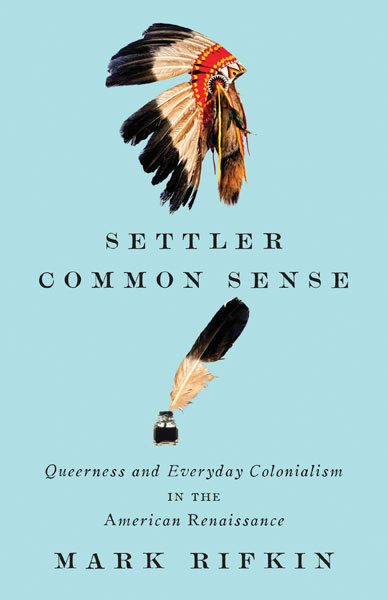
“In Settler Common Sense, Mark Rifkin explores how some of the most canonical of American writers take part in the legacy of displacing Native Americans. Although the books he focuses on are not about Indians, they serve as examples of what Rifkin calls “settler common sense,” taking for granted the legal and political structure through which Native peoples continue to be dispossessed.”
Buy it here.
#8 Queer Insists
By Michael O’Rourke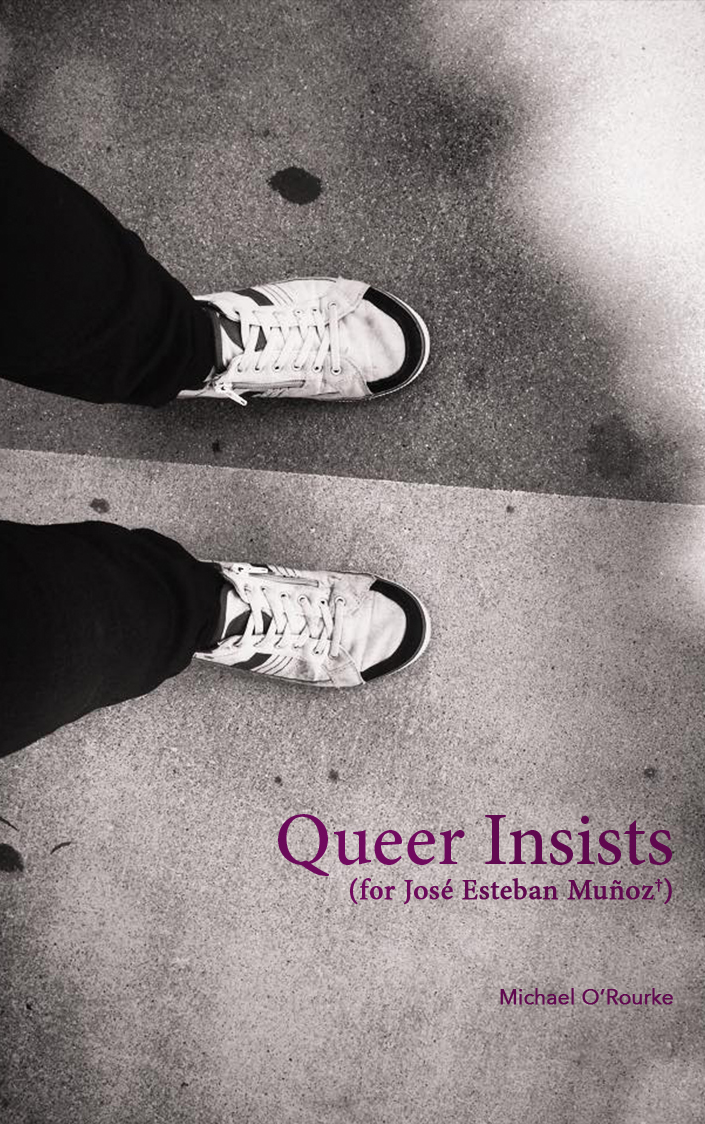
“Queer Insists is a memorial essay, a work of mourning, written for the queer theorist and performance scholar José Esteban Muñoz (1967-2013) shortly after his untimely death in December 2013. In a series of fragments, not unlike Roland Barthes’s Mourning Diary, Michael O’Rourke shares memories of Muñoz, the stories and reflections of his friends in the wake of his passing, and readings of his work from Disidentifications to Cruising Utopia and beyond. O’Rourke argues that, for Muñoz, queer does not exist, per se, but rather insists, soliciting us from the future to-come. Muñoz reached towards teleopoietic worlds as he invented a queer theory we have yet to find, but are invited to glimpse. Among the Muñozian themes this chapbook discusses are hope, utopia, affect, punk rock, heresy, the undercommons, temporality, hauntology, forgetting, loss, ephemera, partage, sense, incommensurability, the event and democracy. In reading Muñoz as a Rogue Theorist, this book borrows many of the gifts we have received (and have yet to receive) from him, marking the force and luminescence of his thought, and insisting upon the rare and precious singularity of his work. Muñoz bequeaths to us a queer studies without condition which it is our duty to foster and to bear as we carry it and him into the unknowable futures of an indiscipline.”
Buy it here.
#9 Controversies
By Alain Badiou and Jean-Claude Milner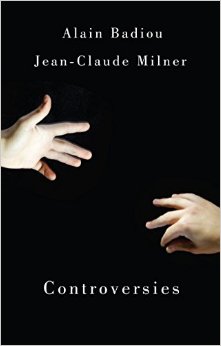
“In this wide-ranging and compelling dialogue, these two great thinkers explore the role of politics in today’s world and consider the need for a formal theory of communist political organization. Whether they are addressing the era of revolutions, and in particular the Paris Commune and the Chinese Cultural Revolution, or discussing the infinite, the universal, the name “Jew”, violence, capitalism, the left, or Europe, Jean-Claude Milner’s dyed-in-the-wool skepticism constantly runs up against Alain Badiou’s doctrinal passion.
This extraordinary debate ultimately leads to new areas of interrogation and shows that there is no better remedy for the crushing power of media-influenced thinking than the revival of the great disputes of the mind.
Buy it here.
#10 Introduction to Non-Marxism
By Francois Laurelle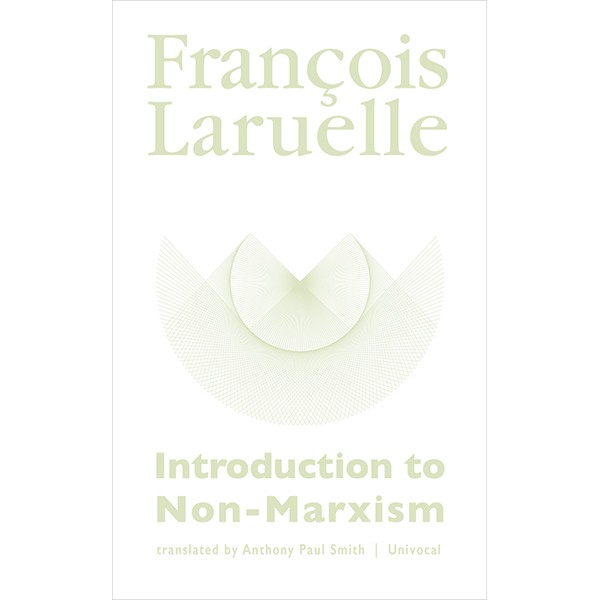
“Following the collapse of the communist states it was also assumed that Marxist philosophy had collapsed with it. In Introduction to Non-Marxism, François Laruelle aims to recover Marxism along with its failure by asking the question “What is to be done with Marxism itself?” To answer that question Laruelle resists both the temptation to make Marxism more palatable after the death of metaphysics by transforming Marxism into a mere social science or simply embracing with evangelical fervor the idea of communism. Instead Laruelle proposes a heretical science of Marxism that will investigate Marxism in both its failure and power so as to fashion new theoretical tools. In the course of engaging with the material of Marxism, Laruelle takes on the philosophy of Marx along with important philosophers who have extended that philosophy including Althusser, Balibar, and Negri as well as the attempt at a phenomenological Marxism found in the work of Michel Henry. Through this engagement Laruelle develops with great precision the history and function of his concept of determination-in-the-last-instance. In the midst of the assumed failure of Marxism and the defections and resentment that followed, Laruelle’s non-Marxism responds with the bold declaration: “Do not give up on theory!””
Pre-order it here.
#11 The Queerness of Native American Literature
By Lisa Tatonetti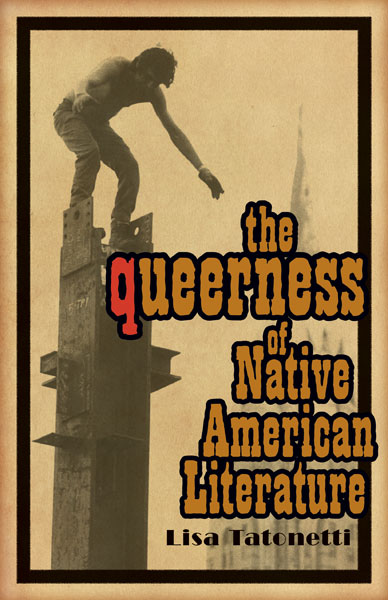
“In The Queerness of Native American Literature, Tatonetti recovers ties between two simultaneous renaissances of the late twentieth century: queer literature and Native American literature. She foregrounds how Indigeneity intervenes within and against dominant interpretations of queer genders and sexualities, recovering unfamiliar texts from the 1970s while presenting fresh, cogent readings of well-known works. In juxtaposing the work of Native authors—including the longtime writer–activist Paula Gunn Allen, the first contemporary queer Native writer Maurice Kenny, the poet Janice Gould, the novelist Louise Erdrich, and the filmmakers Sherman Alexie, Thomas Bezucha, and Jorge Manuel Manzano—with the work of queer studies scholars, Tatonetti proposes resourceful interventions in foundational concepts in queer studies while also charting new directions for queer Native studies.”
Buy it here.
#12 The Divine Left
By Jean Baudrillard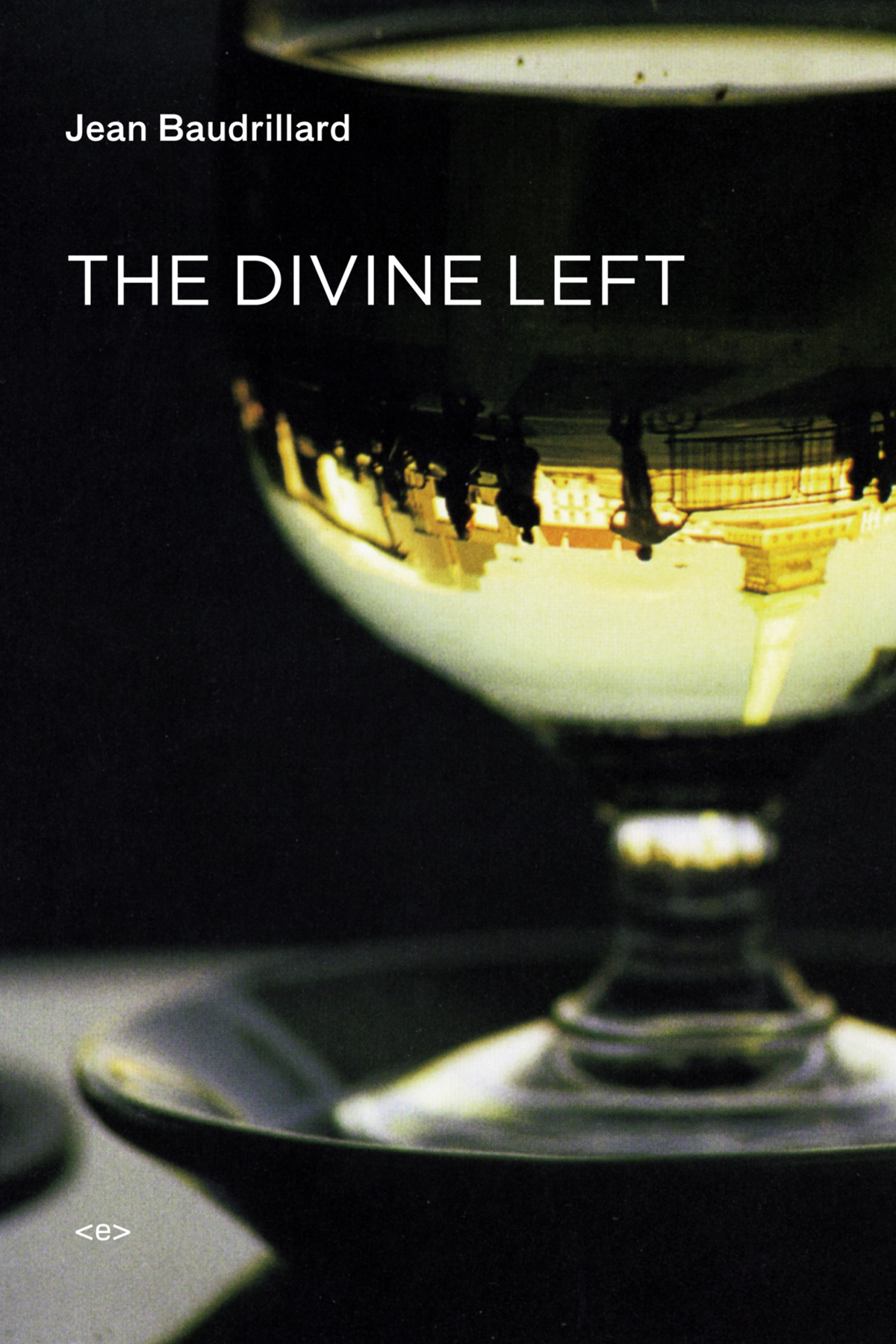 “First published in French in 1985, The Divine Left
is Jean Baudrillard’s chronicle of French political life from 1977 to
1984. It offers the closest thing to political analysis to be found from
a thinker who has too often been regarded as apolitical. Gathering
texts that originally appeared as newspaper commentary on François
Mitterand’s rise to power as France’s first Socialist president and the
Socialist Party’s fraught alliance with the French Communist Party, The
Divine Left in essence presents Baudrillard’s theory of the simulacrum
as it operates in the political sphere.”
“First published in French in 1985, The Divine Left
is Jean Baudrillard’s chronicle of French political life from 1977 to
1984. It offers the closest thing to political analysis to be found from
a thinker who has too often been regarded as apolitical. Gathering
texts that originally appeared as newspaper commentary on François
Mitterand’s rise to power as France’s first Socialist president and the
Socialist Party’s fraught alliance with the French Communist Party, The
Divine Left in essence presents Baudrillard’s theory of the simulacrum
as it operates in the political sphere.”Buy it here.
#13 Nietzsche Apostle
By Peter Sloterdijk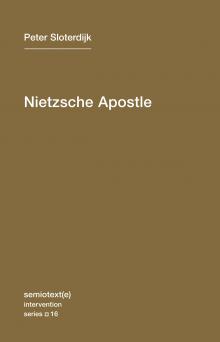 “For
Peter Sloterdijk, Friedrich Nietzsche represents nothing short of a
“catastrophe in the history of language”—a new evangelist for a
linguistics of narcissistic jubilation. Nietzsche offered a
philosophical declaration of independence from humility, a meeting-point
of sobriety and megalomania that for Sloterdijk has come to define the
very project of philosophy.
“For
Peter Sloterdijk, Friedrich Nietzsche represents nothing short of a
“catastrophe in the history of language”—a new evangelist for a
linguistics of narcissistic jubilation. Nietzsche offered a
philosophical declaration of independence from humility, a meeting-point
of sobriety and megalomania that for Sloterdijk has come to define the
very project of philosophy.Yet for all the significance of this language-event named Nietzsche, Nietzsche’s contributions have too often been elided and the contradictions at the root of his philosophy too often edited out. As Sloterdijk observes, “Never has an author so insisted on distinction and yet attracted such vulgarity.” Nietzsche Apostle, drawn from a speech Sloterdijk gave in 2000 on the hundredth anniversary of Nietzsche’s death, looks at the ways in which Nietzsche has been branded over the years through selective compilation, and at the ways in which Nietzsche turned himself into a brand—a brand announced by his proclaimed “fifth Gospel,” Thus Spoke Zarathustra. For Sloterdijk, the focus should not be on the figure of Zarathustra or on the “will to power” often used as a kind of philosophical shorthand to sum up Nietzsche’s work, but on Zarathustra’s act of “speaking” itself. Nietzsche Apostle offers a brief history of self-praise and self-affirmation, an examination of the evolution of boasting (both by God and by man), and a very original approach to Nietzsche, philosophy’s first designer brand of individualism.”
Buy it here.
#14 Outlaws of the Atlantic
By Marcus Rediker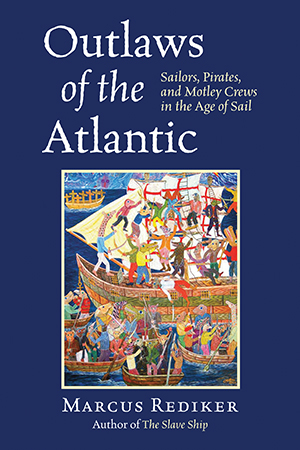
“In Outlaws of the Atlantic, award-winning historian Marcus Rediker turns maritime history upside down. He explores the dramatic world of maritime adventure, not from the perspective of admirals, merchants, and nation-states but from the viewpoint of commoners—sailors, slaves, indentured servants, pirates, and other outlaws from the late seventeenth to the early nineteenth century. Bringing together their seafaring experiences for the first time, Outlaws of the Atlantic is an unexpected and compelling peoples’ history of the “age of sail.”
With his signature bottom-up approach and insight, Rediker reveals how the “motley”—that is, multiethnic—crews were a driving force behind the American Revolution; that pirates, enslaved Africans, and other outlaws worked together to subvert capitalism; and that, in the era of the tall ship, outlaws challenged authority from below deck.”
Buy it here.
#15 Towards an Architecture of Enjoyment
By Henri Lefebvre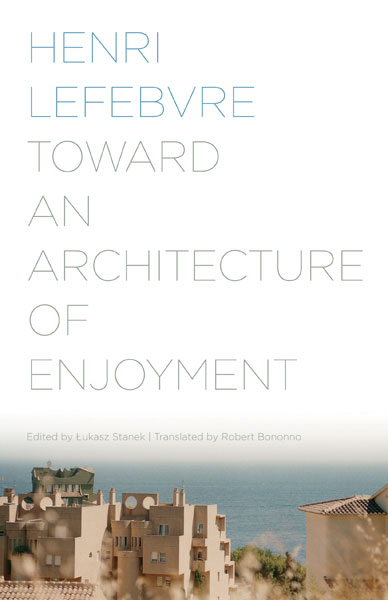
“Toward an Architecture of Enjoyment, the first publication of Henri Lefebvre’s only book devoted to architecture, redefines architecture as a mode of imagination rather than a specialized process or a collection of monuments. Lefebvre calls for an architecture of jouissance—of pleasure or enjoyment—centered on the body and its rhythms and based on the possibilities of the senses. ”
Buy it here.
#16 Deleuze and the Naming of God
by Daniel Coluciello Barber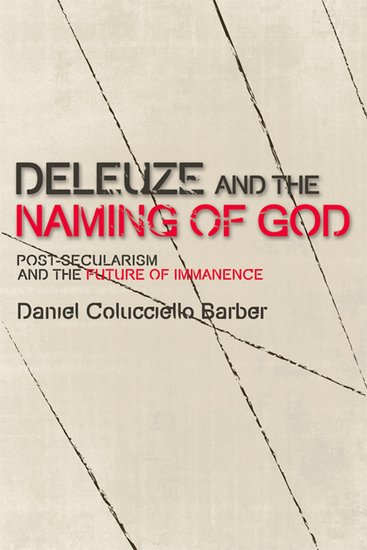
“Deleuze and the Naming of God addresses the intersection between Deleuze’s thought and the notion of religion to proposes an alliance between immanence and the act of naming God. In doing so, Barber gives us a way out of the paralysing debate between religion and the secular.”
Buy it here.
#17 Prismatic Ecology
Edited by Jeffrey Jerome Cohen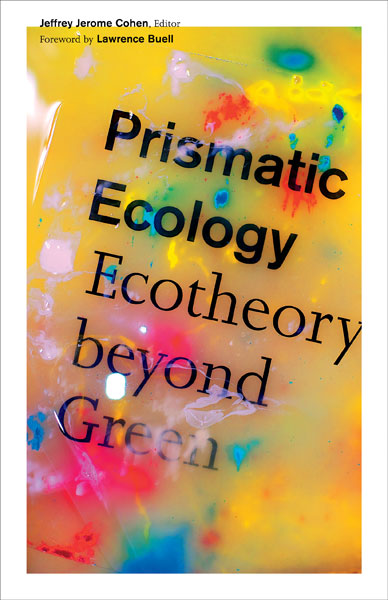
“Emphasizing sustainability, balance, and the natural, green dominates our thinking about ecology like no other color. What about the catastrophic, the disruptive, the inaccessible, and the excessive? What of the ocean’s turbulence, the fecundity of excrement, the solitude of an iceberg, multihued contaminations? Prismatic Ecology moves beyond the accustomed green readings of ecotheory and maps a colorful world of ecological possibility.
…Featuring established and emerging scholars from varying disciplines, this volume presents a collaborative imagining of what a more-than-green ecology offers. While highlighting critical approaches not yet common within ecotheory, the contributions remain diverse and cover a range of topics including materiality, the inhuman, and the agency of objects. By way of color, Cohen guides readers through a reflection of an essentially complex and disordered universe and demonstrates the spectrum as an unfinishable totality, always in excess of what a human perceives.”
Buy it here.
#18 Cut of the Real: Subjectivity in Poststructuralist Philosophy
By Katerina Kolozova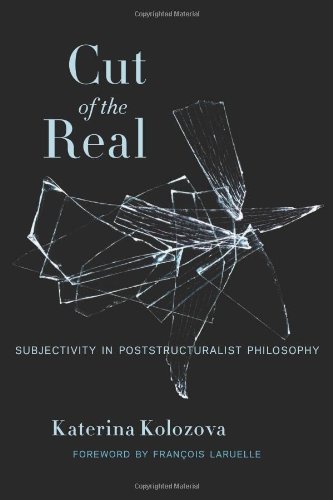
“Following François Laruelle’s nonstandard philosophy and the work of Judith Butler, Drucilla Cornell, Luce Irigaray, and Rosi Braidotti, Katerina Kolozova reclaims the relevance of categories traditionally rendered “unthinkable” by postmodern feminist philosophies, such as “the real,” “the one,” “the limit,” and “finality,” thus critically repositioning poststructuralist feminist philosophy and gender/queer studies.
Poststructuralist (feminist) theory sees the subject as a purely linguistic category, as always already multiple, as always already nonfixed and fluctuating, as limitless discursivity, and as constitutively detached from the instance of the real. This reconceptualization is based on the exclusion of and dichotomous opposition to notions of the real, the one (unity and continuity), and the stable. The non-philosophical reading of postructuralist philosophy engenders new forms of universalisms for global debate and action, expressed in a language the world can understand. It also liberates theory from ideological paralysis, recasting the real as an immediately experienced human condition determined by gender, race, and social and economic circumstance.
Buy it here.
#19 The Radical Thinkers Set 8
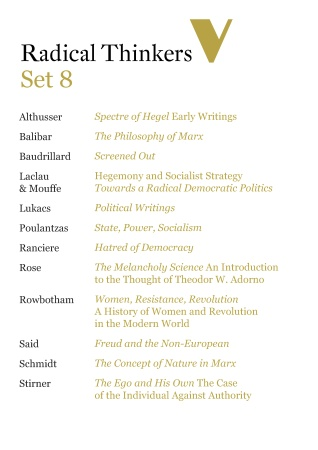 Ok,
this is actually a bunch of books. The latest set includes 12 curated
critical theory classics, including some otherwise hard to find in
print. We spent most of January posting some of our favorite excerpts,
which you can find here.
Ok,
this is actually a bunch of books. The latest set includes 12 curated
critical theory classics, including some otherwise hard to find in
print. We spent most of January posting some of our favorite excerpts,
which you can find here.Check out more info on the set here.
#20 Representing Capital
By Fredric Jameson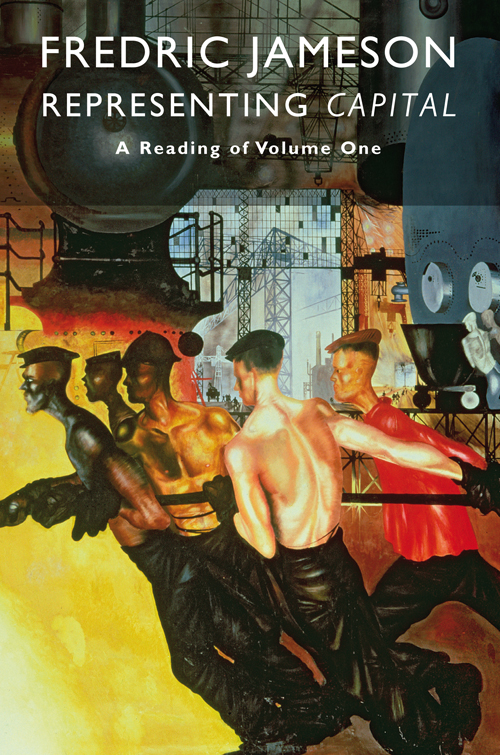
“Representing Capital, Fredric Jameson’s first book-length engagement with Marx’s magnum opus, is a unique work of scholarship that records the progression of Marx’s thought as if it were a musical score. The textual landscape that emerges is the setting for paradoxes and contradictions that struggle toward resolution, giving rise to new antinomies and a new forward movement. These immense segments overlap each other to combine and develop on new levels in the same way that capital itself does, stumbling against obstacles that it overcomes by progressive expansions, which are in themselves so many leaps into the unknown.”
Buy it here.
#21 Lacan: In Spite of Everything
By Elisabeth Roudinesco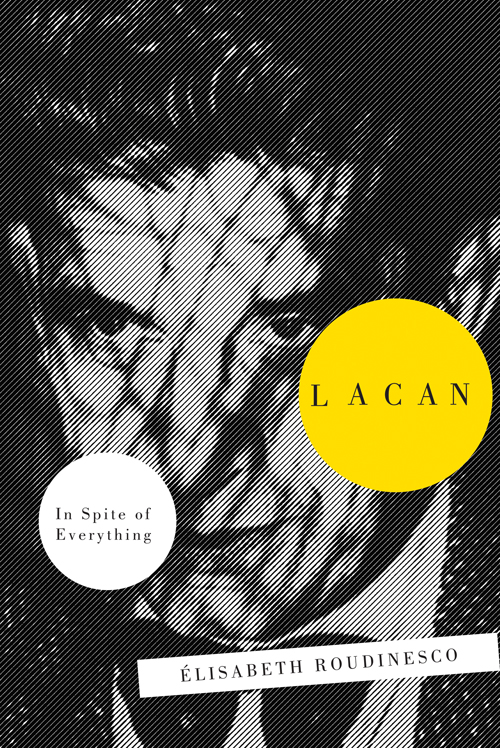
“Jacques Lacan continues to be subject to the most extravagant interpretations. Angelic to some, he is demonic to others. To recall Lacan’s career, now that the heroic age of psychoanalysis is over, is to remember an intellectual and literary adventure that occupies a founding place in our modernity. Lacan went against the current of many of the hopes aroused by 1968, but embraced their paradoxes, and his language games and wordplay resonate today as so many injunctions to replace rampant individualism with a heightened social consciousness.
Widely recognized as the leading authority on Lacan, Élisabeth Roudinesco revisits his life and work: what it was – and what it remains.”
Buy it here.
#22 Women Who Make a Fuss: The Unfaithful Daughters of Virginia Woolf
By Isabelle Strengers and Vinciane Despret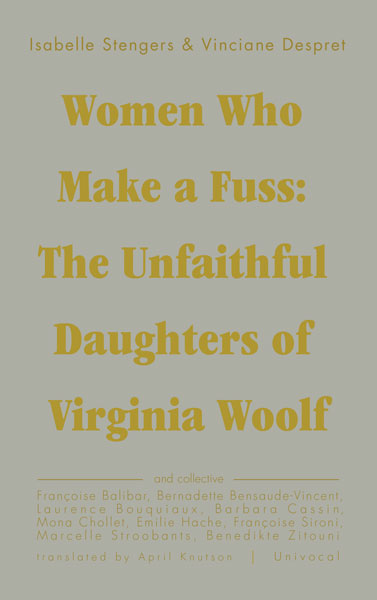
“Virginia Woolf, to whom university admittance had been forbidden, watched the universities open their doors. Though she was happy that her sisters could study in university libraries, she cautioned women against joining the procession of educated men and being co-opted into protecting a “civilization” with values alien to women. Now, as Woolf’s disloyal (unfaithful) daughters, who have professional positions in Belgian universities, Isabelle Stengers and Vinciane Despret, along with a collective of women scholars in Belgium and France, question their academic careers and reexamine the place of women and their role in thinking, both inside and outside the university. They urge women to heed Woolf’s cry—Think We Must—and to always make a fuss about injustice, cruelty, and arrogance.”
Buy it here.
#23 Gendering the Recession
By Diane Negra and Yvonne Tasker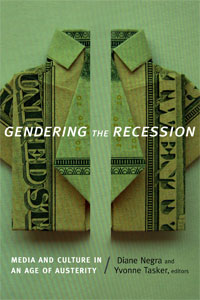
“This timely, necessary collection of essays provides feminist analyses of a recession-era media culture characterized by the reemergence and refashioning of familiar gender tropes, including crisis masculinity, coping women, and postfeminist self-renewal. Interpreting media forms as diverse as reality television, financial journalism, novels, lifestyle blogs, popular cinema, and advertising, the contributors reveal gendered narratives that recur across media forms too often considered in isolation from one another. They also show how, with a few notable exceptions, recession-era popular culture promotes affective normalcy and transformative individual enterprise under duress while avoiding meaningful critique of the privileged white male or the destructive aspects of Western capitalism. By acknowledging the contradictions between political rhetoric and popular culture, and between diverse screen fantasies and lived realities, Gendering the Recession helps to make sense of our postboom cultural moment.”
Buy it here.
#24 Iconoclastic Theology: Deleuze and Secretion of Atheism
By F. LeRon Shults“F. LeRon Shults explores Deleuze’s fascination with theological themes and shows how his entire corpus can be understood as a creative atheist machine that liberates thinking, acting and feeling. Shults also demonstrates how the flow of a productive atheism can be increased by bringing Deleuzian concepts into dialogue with insights derived from the bio-cultural sciences of religion.
Gilles Deleuze consistently hammered away at icons, overturning pretentious images taken as true copies of ideal models. He was particularly critical of religious Figures. In What is Philosophy? Deleuze argued that religion and transcendence, like philosophy and immanence, always come (and go) together. What value, then, could he possibly have found in engaging theology, which is typically bound to a particular religious coalition? Chipping away at repressive religious representations was valuable in itself for Deleuze, but he also believed that religion produced something of considerable value. He insisted that every religion secretes atheism, and none more so than Christianity.”
Buy it here.
#25 Zizek’s Jokes
By Slavoj Zizek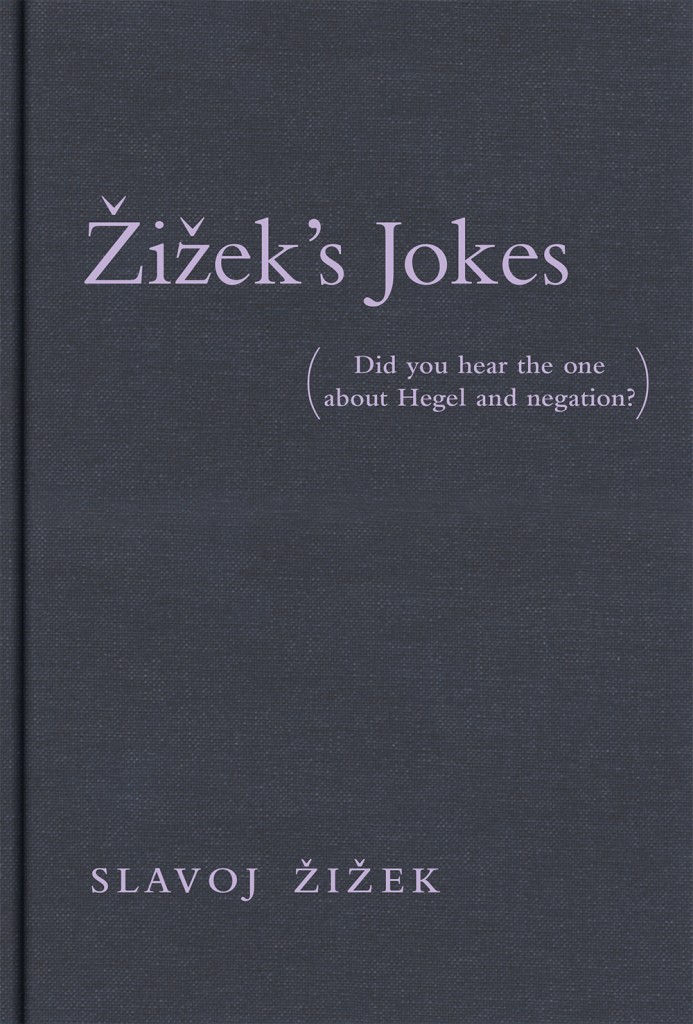
“The good news is that this book offers an entertaining but enlightening compilation of Žižekisms. Unlike any other book by Slavoj Žižek, this compact arrangement of jokes culled from his writings provides an index to certain philosophical, political, and sexual themes that preoccupy him. Žižek’s Jokes contains the set-ups and punch lines—as well as the offenses and insults—that Žižek is famous for, all in less than 200 pages.
So what’s the bad news? There is no bad news. There’s just the inimitable Slavoj Žižek, disguised as an impossibly erudite, politically incorrect uncle, beginning a sentence, “There is an old Jewish joke, loved by Derrida . . .“ For Žižek, jokes are amusing stories that offer a shortcut to philosophical insight. He illustrates the logic of the Hegelian triad, for example, with three variations of the “Not tonight, dear, I have a headache” classic: first the wife claims a migraine; then the husband does; then the wife exclaims, “Darling, I have a terrible migraine, so let’s have some sex to refresh me!” A punch line about a beer bottle provides a Lacanian lesson about one signifier. And a “truly obscene” version of the famous “aristocrats” joke has the family offering a short course in Hegelian thought rather than a display of unspeakables.
Žižek’s Jokes contains every joke cited, paraphrased, or narrated in Žižek’s work in English (including some in unpublished manuscripts), including different versions of the same joke that make different points in different contexts. The larger point being that comedy is central to Žižek’s seriousness.”
Buy it here.
#26 Playing the Whore
By Melissa Gira Grant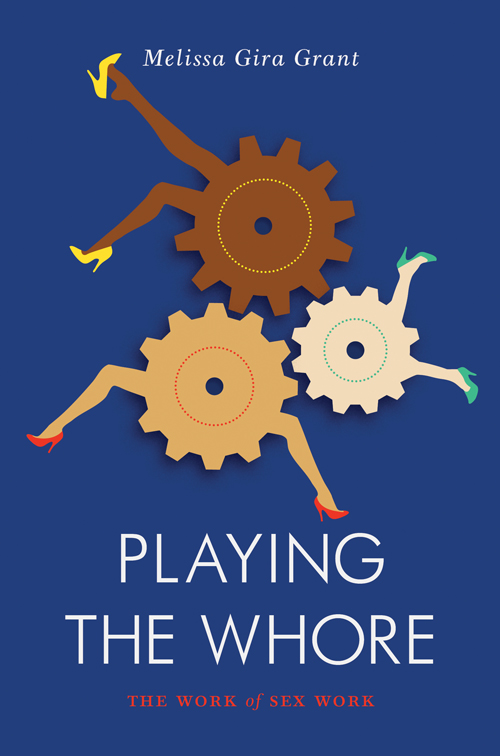
“The sex industry is an endless source of prurient drama for the mainstream media. Recent years have seen a panic over “online red-light districts,” which supposedly seduce vulnerable young women into a life of degradation, and New York Times columnist Nicholas Kristof’s live tweeting of a Cambodian brothel raid. The current trend for writing about and describing actual experiences of sex work fuels a culture obsessed with the behaviour of sex workers. Rarely do these fearful dispatches come from sex workers themselves, and they never seem to deviate from the position that sex workers must be rescued from their condition, and the industry simply abolished — a position common among feminists and conservatives alike.
In Playing the Whore, journalist Melissa Gira Grant turns these pieties on their head, arguing for an overhaul in the way we think about sex work. Based on ten years of writing and reporting on the sex trade, and grounded in her experience as an organizer, advocate, and former sex worker, Playing the Whore dismantles pervasive myths about sex work, criticizes both conditions within the sex industry and its criminalization, and argues that separating sex work from the “legitimate” economy only harms those who perform sexual labor.
In Playing the Whore, sex workers’ demands, too long relegated to the margins, take center stage: sex work is work, and sex workers’ rights are human rights.”
Buy it here.
#27 Agamben and Politics
By Sergei Prozorov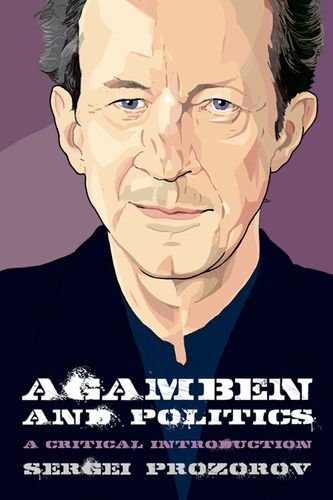
“Tracing how the logic of inoperativity works in the domains of language, law, history and humanity, Agamben and Politics systematically introduces the fundamental concepts of Agamben’s political thought and a critically interprets his insights in the wider context of contemporary philosophy.
Agamben’s commentators and critics tend to focus on his powerful critique of the Western political tradition in the Homo Sacer series. But this narrow focus serves to obscure the overall structure of Agamben’s political thought, which is neither negative nor critical but affirmative. Sergei Prozorov brings out the affirmative mood of Agamben’s political thought, focusing on the concept of inoperativity, which has been central to Agamben’s work from his earliest writings.”
Buy it here.
#28 Reasoning with Who We Are : Democratic Theory For a Not So Liberal Era
By Mark Redhead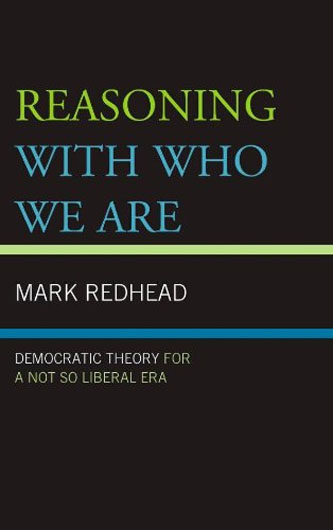
“Public reasoning, a manner of democratic deliberation that can generate meaningful conceptions of justice, the collective good, and other unifying political values among individuals subscribing to varied and contrasting doctrines, has been a perennial concern among political philosophers from historical thinkers such as Immanuel Kant to contemporary theorists like John Rawls and Jurgen Habermas. In this ambitious study, Mark Redhead explores versions of public reasoning in the works of six of the most important voices in contemporary political theory; Alasdair MacIntyre, Charles Taylor, Hannah Arendt, Seyla Benhabib, Michel Foucault, and William E. Connolly. He identifies an important but as of yet unappreciated version of public reasoning–, one that provides creative and effective responses to questions at the forefront of liberal democratic political thought: human rights, secularity, and global governance.”
Buy it here.
#29 Making Money: The Philosophy of Crisis Capitalism
By Ole Bjerg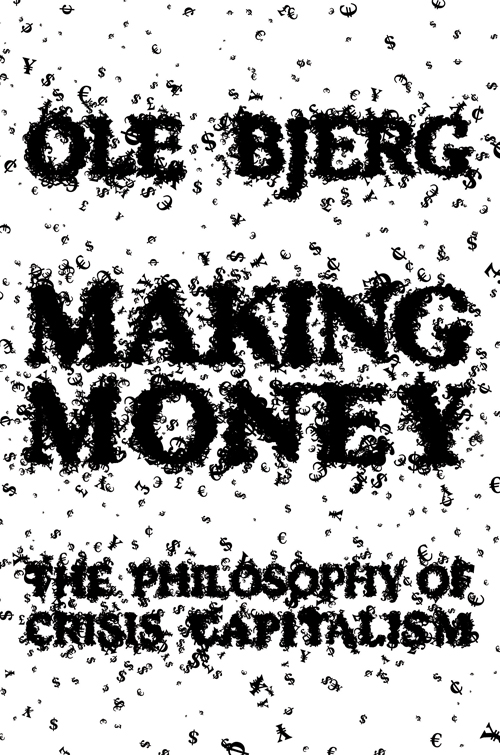
“What is money? Where does it come from? Who makes it? And how can we understand the current state of our economy as a crisis of money itself?
In Making Money, Ole Bjerg turns these questions into a matter of philosophical rather than economic analysis. Applying the thinking of Slavoj Žižek and other scholars to mainstream economic literature, Bjerg provides a radical new way of looking at the mysterious stuff we use to buy things. It is a theory unfolded in reflections on the nature of monetary phenomena such as financial markets, banks, debt, credit, derivatives, gold, risk, value, price, interests, and arbitrage. The analysis of money is put into an historical context, suggesting that the current financial turbulence and debt crisis are evidence that we live in the age of post-credit capitalism. By bridging the fields of economics and contemporary philosophy, Bjerg’s work engages in a compelling form of intellectual arbitrage.”
Buy it here.
#30 Why Are Animals So Funny
By EDA Collective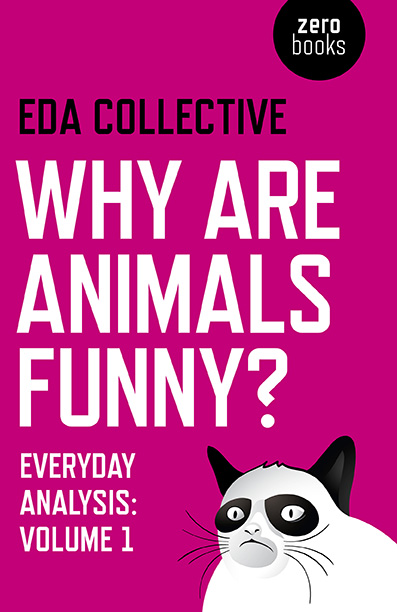
Review31 writes:
“Have you ever considered the ideological function of standing on a crowded train? Maybe not, because (in my experience) usually the only thought that comes to mind is how horrible and overpriced the train is and what your plans are upon arriving at your destination. In their new book ‘Why Are Animals Funny?’ Everyday Analysis (EDA) – a group of Manchester- and London-based writers known as the ‘EDA Collective’ – offers a critical, philosophical, psychoanalytical perspective of things we experience every day that are often accepted, unchallenged and unquestioned. In the spirit of Roland Barthes’ ‘Mythologies’, the 46 short articles make up a compendium of cultural and political analysis. The articles were collected from their blog http://www.everydayanalysis.com/ which began back in January 2013 and is still regularly being updated. Some of the articles are funny and droll, while some incite discontent, and others evoke empathic understanding and a sheepish “I never thought about it that way before”; all are wonderfully written, well-informed, and (most importantly, I think) accessible.”
Buy it here.
#31 The Imperial University
By Piya Chatterjee and Sunaina Maira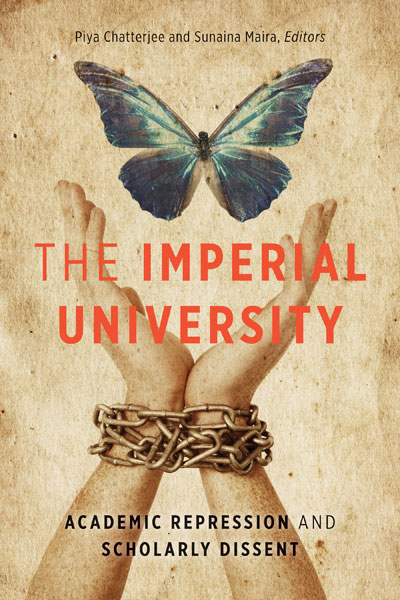
“At colleges and universities throughout the United States, political protest and intellectual dissent are increasingly being met with repressive tactics by administrators, politicians, and the police—from the use of SWAT teams to disperse student protestors and the profiling of Muslim and Arab American students to the denial of tenure and dismissal of politically engaged faculty. The Imperial University brings together scholars, including some who have been targeted for their open criticism of American foreign policy and settler colonialism, to explore the policing of knowledge by explicitly linking the academy to the broader politics of militarism, racism, nationalism, and neoliberalism that define the contemporary imperial state.
The contributors to this book argue that “academic freedom” is not a sufficient response to the crisis of intellectual repression. Instead, they contend that battles fought over academic containment must be understood in light of the academy’s relationship to U.S. expansionism and global capital. Based on multidisciplinary research, autobiographical accounts, and even performance scripts, this urgent analysis offers sobering insights into such varied manifestations of “the imperial university” as CIA recruitment at black and Latino colleges, the connections between universities and civilian and military prisons, and the gender and sexual politics of academic repression.”
Buy it here.
#32 The Critique of Everyday Life
By Henri Lefebvre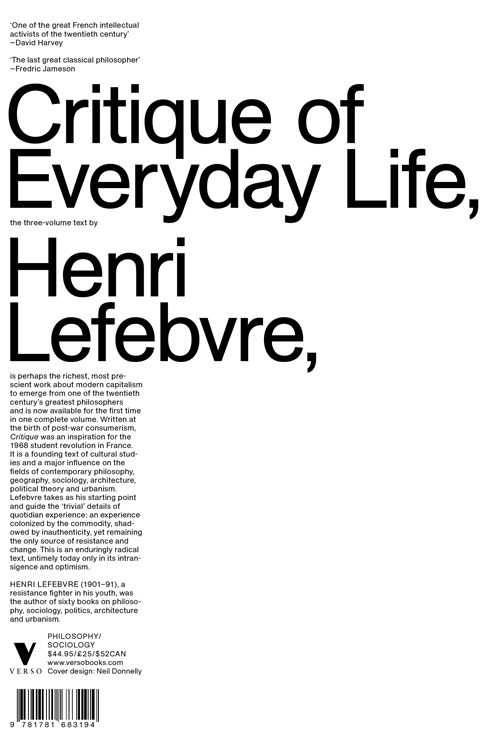
“The three-volume text by Henri Lefebvre is perhaps the richest, most prescient work about modern capitalism to emerge from one of the twentieth century’s greatest philosophers and is now available for the first time in one complete volume. Written at the birth of post-war consumerism, Critique was an inspiration for the 1968 student revolution in France. It is a founding text of cultural studies and a major influence on the fields of contemporary philosophy, geography, sociology, architecture, political theory and urbanism. Lefebvre takes as his starting point and guide the ‘trivial’ details of quotidian experience: an experience colonized by the commodity, shadowed by inauthenticity, yet remaining the only source of resistance and change. This is an enduringly radical text, untimely today only in its intransigence and optimism.”
Buy it here.
#33 The Becoming of the Body
By Amaleena Damlé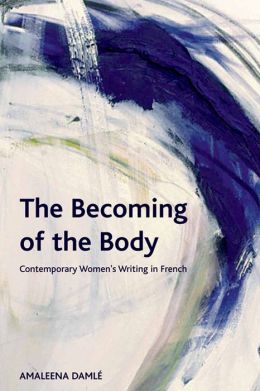
“Following a long tradition of objectification, 20th-century French feminism often sought to liberate the female body from the confines of patriarchal logos and to inscribe its rhythms in writing. But how has the promotion of ‘women’s writing’ in such thought and literature evolved in the years preceding and following the turn of the millennium? What sorts of bodily questions and problems do contemporary female writers evoke?
How are traditional conceptions of the boundaries of the female body contested, exceeded or transformed? And how do contemporary philosophical discourses correspond to the ways that literary authors conceptualise, and write, the female body?”
Buy it here.
#34 History of the Devil
By Vilém Flusser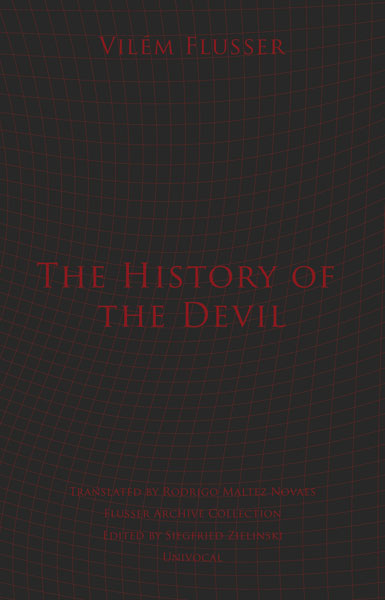
“In The History of the Devil, Flusser frames the human situation from a pseudo-religious point of view. The phenomenal world, or “reality” in a general sense, is identified as the “Devil,” and that which transcends phenomena, or the philosophers’ and theologians’ “reality,” is identified as “God.” Referencing Wittgenstein’s Tractatus Logico-Philosophicus in its structure, Flusser provocatively leads the reader through an existential exploration of nothingness as the bedrock of reality, where “phenomenon” and “transcendence,” “Devil” and “God” become fused and confused. So radically confused, in fact, that Flusser suggests we abandon the quotation marks from the terms “Devil” and “God.” At this moment of abysmal confusion, and of the downfall of all values, we must make the existential decisions that give direction to our lives. ”
Buy it here.
#35 Intensities and Lines of Flight
Edited by Antonio Calcagno, Jim Vernon and Steve G. Lofts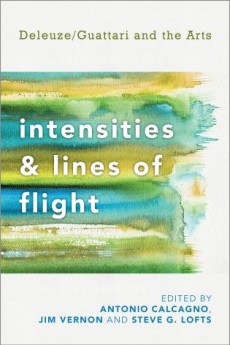
“This rich and original collection of essays, authored by both major Deleuzian scholars and practicing artists and curators, offers an important critique of Deleuze and Guattari’s legacy in relation to a multitude of art forms, including painting, cinema, television, music, architecture, literature, drawing and installation art. Inspired by the implications of Deleuze and Guattari’s work on difference and multiplicity and with a focus on the intersection of theory and practice, the book represents a major interdisciplinary contribution to Deleuze-Guattarian aesthetics.”
Buy it here.
#36 Rhetorical Foundations of Society
By Ernesto Laclau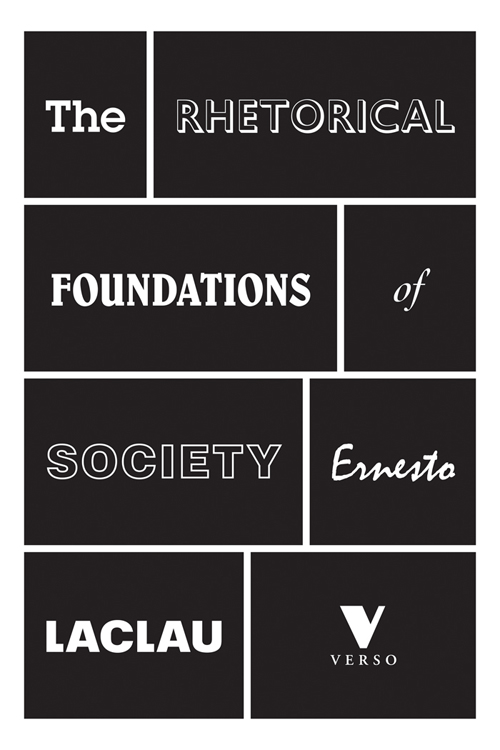 “The essays collected in this volume develop the theoretical perspective initiated in Laclau and Mouffe’s classic Hegemony and Socialist Strategy,
taking it in three principal directions. First, this book explores the
specificity of social antagonisms and answers the question “What is an
antagonistic relation?”—an issue which has become increasingly crucial
in our globalized world, where the proliferation of conflicts and points
of rupture is eroding their links to the social subjects postulated by
classical social analysis. This leads Laclau to a second line of
questioning: What is the ontological terrain that allows us to
understand the nature of social relations in our heterogeneous world?”
This is a task he addresses with theoretical instruments drawn from
analytical philosophy and from the phenomenological and structuralist
traditions. Finally, central to the argument of the book is the basic
role attributed to rhetorical tropes—metaphor, metonymy, catachresis—in
shaping the “non-foundational” grounds of society.”
“The essays collected in this volume develop the theoretical perspective initiated in Laclau and Mouffe’s classic Hegemony and Socialist Strategy,
taking it in three principal directions. First, this book explores the
specificity of social antagonisms and answers the question “What is an
antagonistic relation?”—an issue which has become increasingly crucial
in our globalized world, where the proliferation of conflicts and points
of rupture is eroding their links to the social subjects postulated by
classical social analysis. This leads Laclau to a second line of
questioning: What is the ontological terrain that allows us to
understand the nature of social relations in our heterogeneous world?”
This is a task he addresses with theoretical instruments drawn from
analytical philosophy and from the phenomenological and structuralist
traditions. Finally, central to the argument of the book is the basic
role attributed to rhetorical tropes—metaphor, metonymy, catachresis—in
shaping the “non-foundational” grounds of society.”Buy it here.
#37 Theorizing Native Studies
Edited by Audra Simpson and Andrea Smith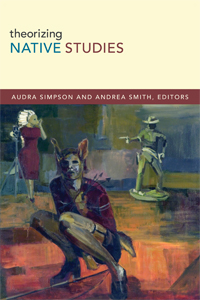
“This important collection makes a compelling argument for the importance of theory in Native studies. Within the field, there has been understandable suspicion of theory stemming both from concerns about urgent political issues needing to take precedence over theoretical speculations and from hostility toward theory as an inherently Western, imperialist epistemology. The editors of Theorizing Native Studies take these concerns as the ground for recasting theoretical endeavors as attempts to identify the larger institutional and political structures that enable racism, inequities, and the displacement of indigenous peoples. They emphasize the need for Native people to be recognized as legitimate theorists and for the theoretical work happening outside the academy, in Native activist groups and communities, to be acknowledged. Many of the essays demonstrate how Native studies can productively engage with others seeking to dismantle and decolonize the settler state, including scholars putting theory to use in critical ethnic studies, gender and sexuality studies, and postcolonial studies. Taken together, the essays demonstrate how theory can serve as a decolonizing practice.”
Buy it here.
#38 Cinders
By Jacques Derrida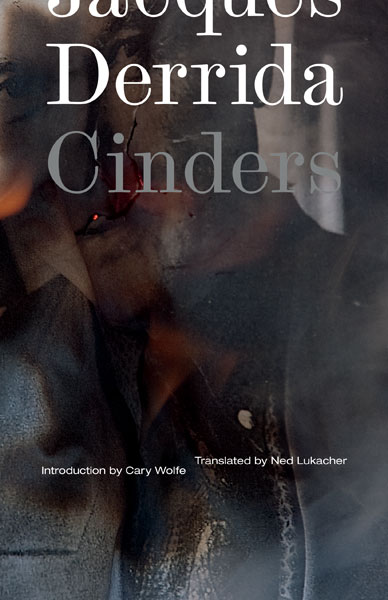
“In a style that is both highly condensed and elliptical, Cinders offers probing reflections on the relation of language to truth, writing, the voice, and the complex connections between the living and the dead. It also contains some of his most essential elaborations of his thinking on the feminine and on the legacy of the Holocaust (both a word—from the Greek hólos, “whole,” and kaustós, “burnt”—and a historical event that invokes ashes) in contemporary poetry and philosophy. In turning from the texts of other philosophers to his own, Cinders enables readers to follow the trajectory from Derrida’s early work on the trace, the gramma, and the voice to his later writings on life, death, time, and the spectral.
Among the most accessible of this renowned philosopher’s many writings, Cinders is an evocative and haunting work of poetic self-analysis that deepens our understanding of Derrida’s critical and philosophical vision.”
Buy it here.
#39 Thought in the Act
By Brian Massumi and Erin Manning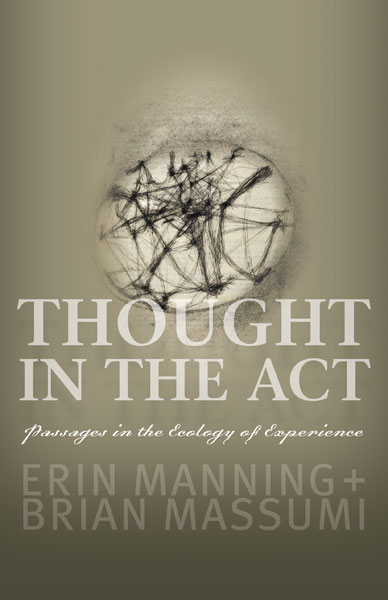
“Combining philosophy and aesthetics, Thought in the Act is a unique exploration of creative practice as a form of thinking. Challenging the common opposition between the conceptual and the aesthetic, Erin Manning and Brian Massumi “think through” a wide range of creative practices in the process of their making, revealing how thinking and artfulness are intimately, creatively, and inseparably intertwined. They rediscover this intertwining at the heart of everyday perception and investigate its potential for new forms of activism at the crossroads of politics and art.
Emerging from active collaborations, the book analyzes the experiential work of the architects and conceptual artists Arakawa and Gins, the improvisational choreographic techniques of William Forsythe, the recent painting practice of Bracha Ettinger, as well as autistic writers’ self-descriptions of their perceptual world and the experimental event making of the SenseLab collective. Drawing from the idiosyncratic vocabularies of each creative practice, and building on the vocabulary of process philosophy, the book reactivates rather than merely describes the artistic processes it examines. The result is a thinking-with and a writing-in-collaboration-with these processes and a demonstration of how philosophy co-composes with the act in the making. Thought in the Act enacts a collaborative mode of thinking in the act at the intersection of art, philosophy, and politics.”
Buy it here.
#40 Spinoza Contra Phenomenology
By Knox Peden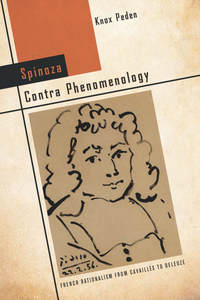
“Spinoza Contra Phenomenology fundamentally recasts the history of postwar French thought, which is typically presumed by detractors and celebrants alike to have been driven by a critique of reason indebted above all to Nietzsche and Heidegger. Although the reception of German phenomenology gave rise to many of the most innovative developments in French philosophy, from existentialism to deconstruction, not everyone in France was pleased with this German import. The book recounts how a series of French philosophers used Spinoza’s rationalism to erect a bulwark against the nominally irrationalist tendencies of Husserl’s and Heidegger’s thought in France. From its beginnings in the interwar years in philosophy of science and the history of philosophy, this Spinozist rationalism would prove foundational for Louis Althusser’s rethinking of Marxism and Gilles Deleuze’s ambitious metaphysics. There has been a renewed enthusiasm for Spinozism in various quarters of late by those who would see it as a kind of neo-vitalism or philosophy of life and affect. Peden bucks the trend by tracking a decisive and neglected aspect of Spinoza’s philosophy—his rationalism—in a body of thought too often presumed to have rejected reason. In the process, he demonstrates that the critical resources of Spinoza’s rationalism have yet to be exhausted today.”
Buy it here.
#41 Willing Slaves of Capital
By Frederic Lordon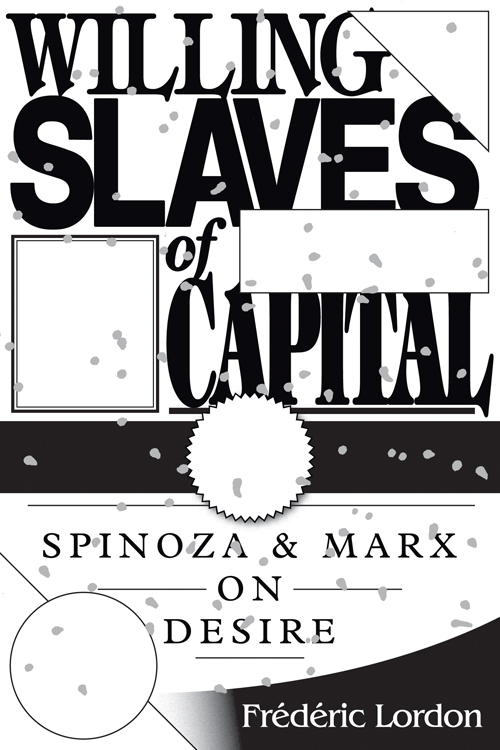
“Why do people work for other people? This seemingly naïve question is more difficult to answer than one might at first imagine, and it lies at the heart of Lordon’s Willing Slaves of Capital.
To complement Marx’s partial answers, especially in the face of the disconcerting spectacle of the engaged, enthusiastic employee, Lordon brings to bear a ‘Spinozist anthropology’ that reveals the fundamental role of affects and passions in the employment relationship, reconceptualizing capitalist exploitation as the capture and remoulding of desire.
A thoroughly materialist reading of Spinoza’s Ethics allows Lordon to debunk notions of individual autonomy and selfdetermination while simultaneously saving the ideas of political freedom and liberation from capitalist exploitation. Willing Slaves of Capital is a bold proposal to rethink capitalism and its transcendence on the basis of the contemporary experience of work.”
Buy it here, or check out this free excerpt.
#42 Fredric Jameson: The Project of Dialectical Criticism
By Robert Tally Jr.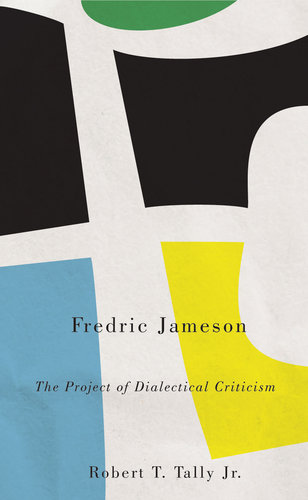
“Fredric Jameson is the most important Marxist critic in the world today. While consistently operating at the cutting edge of literary and cultural studies, Jameson has remained committed to seemingly old-fashioned philosophical discourses, most notably dialectical criticism and utopian thought.
In Fredric Jameson: The Project of Dialectical Criticism, Robert Tally surveys Jameson’s entire oeuvre, from his early studies of Sartre and formal criticism through his engagements with postmodernism and globalisation to his recent readings of Hegel, Marx and the valences of the dialectic.”
Buy it here.
#43 Affirmation of Poetry
By Judith Balso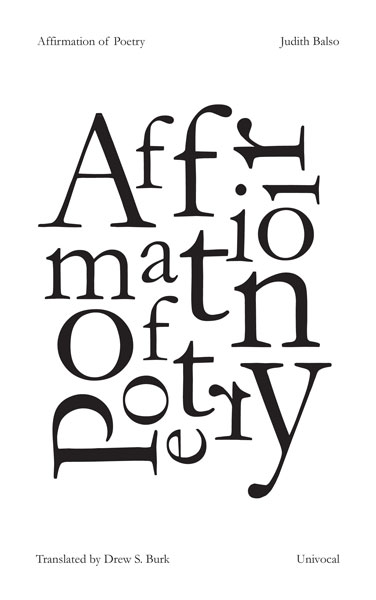
“In Affirmation of Poetry, Judith Balso defends the significance of poetry as a necessary practice for thinking. In analyzing the affirmation of thought found within the work of such poets as Osip Mandelstam, Wallace Stevens, Alberto Caeiro, and Giacomo Leopardi, Balso reestablishes the importance of poetry’s place as a site of thought. ”
Buy it here.
#44 24/7
By Jonathan Crary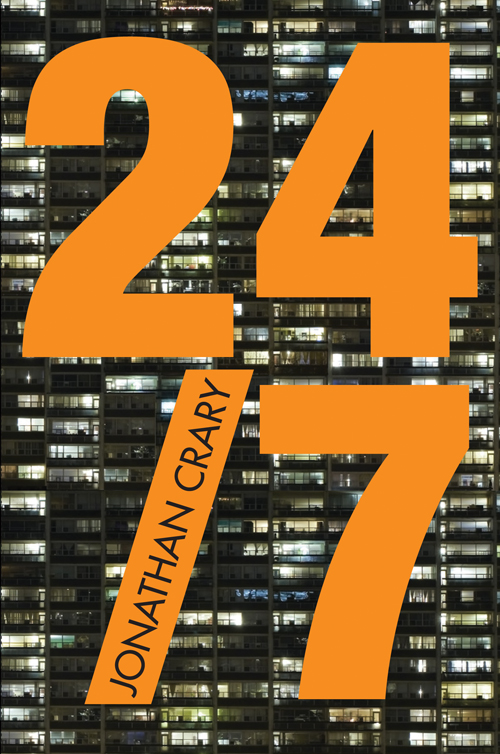
“24/7: Late Capitalism and the Ends of Sleep explores some
of the ruinous consequences of the expanding non-stop processes of
twenty-first-century capitalism. The marketplace now operates through
every hour of the clock, pushing us into constant activity and eroding
forms of community and political expression, damaging the fabric of
everyday life.
Jonathan Crary examines how this interminable non-time blurs any separation between an intensified, ubiquitous consumerism and emerging strategies of control and surveillance. He describes the ongoing management of individual attentiveness and the impairment of perception within the compulsory routines of contemporary technological culture. At the same time, he shows that human sleep, as a restorative withdrawal that is intrinsically incompatible with 24/7 capitalism, points to other more formidable and collective refusals of world-destroying patterns of growth and accumulation.”
Buy it here.
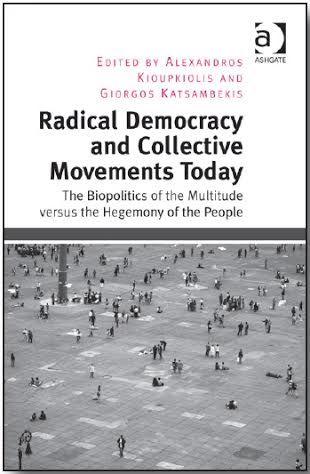
“The ‘Arab spring’, the Spanish indignados, the Greek aganaktismenoi
and the Occupy Wall Street movement all share a number of distinctive
traits; they made extensive use of social networking and were committed
to the direct democratic participation of all as they co-ordinated and
conducted their actions. Leaderless and self-organized, they were
socially and ideologically heterogeneous, dismissing fixed agendas or
ideologies. Still, the assembled multitudes that animated these
mobilizations often claimed to speak in the name of ‘the people’, and
they aspired to empowered forms of egalitarian self-government in
common.Jonathan Crary examines how this interminable non-time blurs any separation between an intensified, ubiquitous consumerism and emerging strategies of control and surveillance. He describes the ongoing management of individual attentiveness and the impairment of perception within the compulsory routines of contemporary technological culture. At the same time, he shows that human sleep, as a restorative withdrawal that is intrinsically incompatible with 24/7 capitalism, points to other more formidable and collective refusals of world-destroying patterns of growth and accumulation.”
Buy it here.
#45 Radical Democracy and Collective Movements Today
Edited by Alexandros Kioupkiolis and Giorgos Katsambekis
Similar features have marked collective resistances from the Zapatistas and the Seattle protests onwards, giving rise to theoretical and practical debates over the importance of these ideological and political forms. By engaging with the controversy between the autonomous, biopolitical ‘multitude’ of Hardt and Negri and the arguments in favour of the hegemony of ‘the people’ advanced by J. Rancière, E. Laclau, C. Mouffe and S. Žižek the central aim of this book is to discuss these instances of collective mobilization, to probe the innovative practices and ideas they have developed and to debate their potential to reinvigorate democracy whilst seeking something better than ‘disaster capitalism’.”
Buy it here.
#46 Derrida’s Voice and Phenomenom
By Vernon Cisney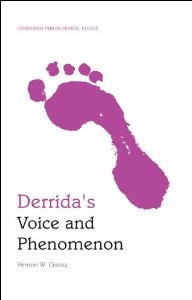
“Published in 1967, Voice and Phenomenon marked a crucial turning point in Derrida’s thinking: the culmination of a 15-year-long engagement with the phenomenological tradition. It also introduced the concepts and themes that would become deconstruction.
Voice and Phenomenon is a short book, but it can be an overwhelming text, particularly for inexperienced readers of Derrida’s work. This is the first guide to clearly explain the structure of his argument, step by step.”
Buy it here.
#47 On the Pleasure Principle in Culture
By Robert Pfaller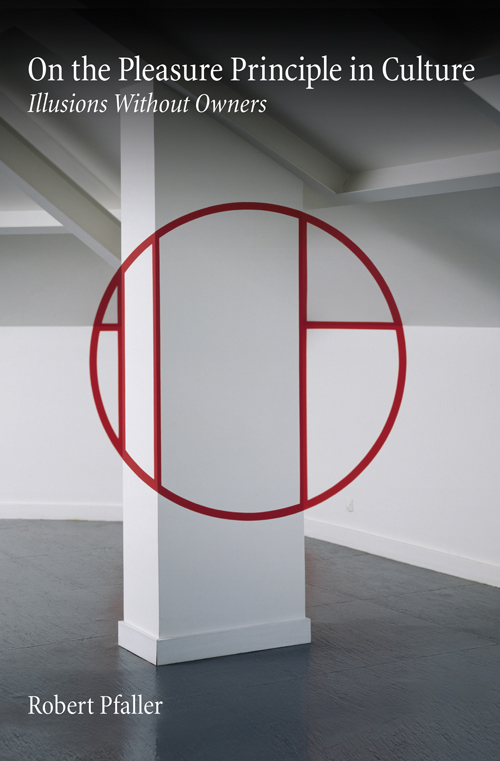
“In this fascinating work of cultural theory and philosophy, Robert Pfaller explores the hidden cost of our contemporary approach to pleasure, belief and illusion.
Sports, design, eroticism, social intercourse and games—indeed, all those aspects of our culture commonly deemed “pleasurable”—seem to require beliefs that many regard as illusory. But in considering themselves above the self-deceptions of the crowd, those same sceptics are prone to dismissing a majority of the population as naive or misguided. In doing so, they create a false opposition between the ‘simple’ masses and their more enlightened rulers. And this dichotomy then functions as an ideological support for neoliberal government: citizens become irrational victims, to be ruled over by a protective security state. What initially appears to be a universal pleasure principle—the role of “anonymous illusions” in mass culture—in this way becomes a rationale for dismantling democracy.”
Buy it here.
#48 The Far Reaches
By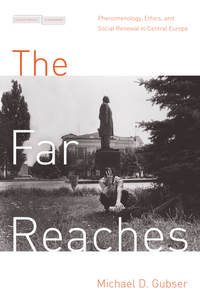 “When
future historians chronicle the twentieth century, they will see
phenomenology as one of the preeminent social and ethical philosophies
of its age. The phenomenological movement not only produced systematic
reflection on common moral concerns such as distinguishing right from
wrong and explaining the status of values; it also called on philosophy
to renew European societies facing crisis, an aim that inspired thinkers
in interwar Europe as well as later communist bloc dissidents.
“When
future historians chronicle the twentieth century, they will see
phenomenology as one of the preeminent social and ethical philosophies
of its age. The phenomenological movement not only produced systematic
reflection on common moral concerns such as distinguishing right from
wrong and explaining the status of values; it also called on philosophy
to renew European societies facing crisis, an aim that inspired thinkers
in interwar Europe as well as later communist bloc dissidents.Despite this legacy, phenomenology continues to be largely discounted as esoteric and solipsistic, the last gasp of a Cartesian dream to base knowledge on the isolated rational mind. Intellectual histories tend to cite Husserl’s epistemological influence on philosophies like existentialism and deconstruction without considering his social or ethical imprint. And while a few recent scholars have begun to note phenomenology’s wider ethical resonance, especially in French social thought, its image as stubbornly academic continues to hold sway. The Far Reaches challenges that image by tracing the first history of phenomenological ethics and social thought in Central Europe, from its founders Franz Brentano and Edmund Husserl through its reception in East Central Europe by dissident thinkers such as Jan Pato ka, Karol Wojty a (Pope John Paul II), and Václav Havel.”
Buy it here.
#49 A Brave Man Seven Storeys Tall (Fiction)
By Will Chancellor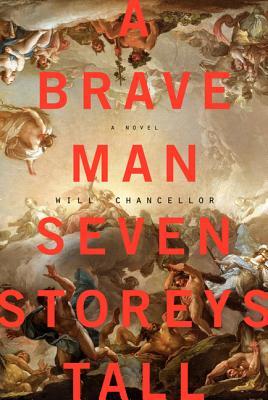
The only fiction on this list:
“Professor Burr has never been the father he wants to be. His son, Owen, captain of the Stanford University water polo team, bound for the Olympics in Athens, is blinded during a match and flees to Berlin without graduating. His disappearance triggers a call to action on the part of Dr. Burr. He dusts off his more speculative theory, Liminalism, to embark on a speaking tour, pushing his theory to its radical extreme—at his own peril and with Jean Baudrillard’s help—in order to send up flares for his son in Greece, Germany, and Iceland. A compulsively readable novel of ideas, action, and intrigue, A Brave Man Seven Storeys Tall offers a persuasive vision of personal agency, art, family, and the narratives we build for ourselves. ”
Buy it here.
#50 Philosophy of Praxis
By Andrew Feenberg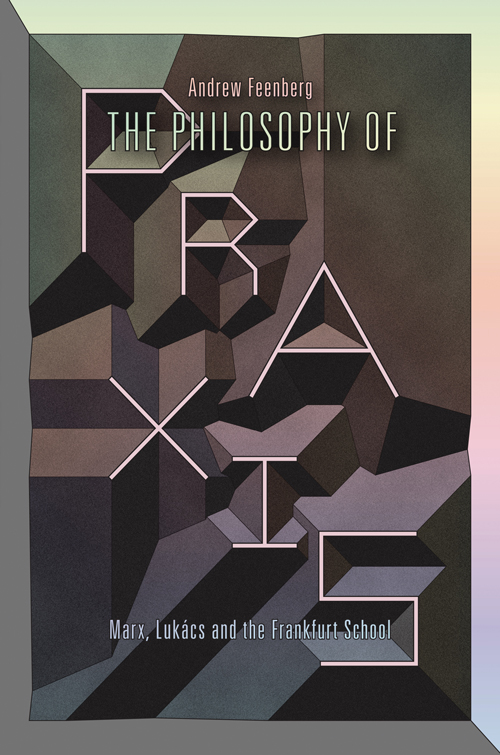
“The early Marx called for the “realization of philosophy” through revolution. Revolution thus became a critical concept for Marxism, a view elaborated in the later praxis perspectives of Lukács and the Frankfurt School. These thinkers argue that fundamental philosophical problems are, in reality, social problems abstractly conceived.
Originally published as Lukács, Marx and the Sources of Critical Theory, The Philosophy of Praxis traces the evolution of this argument in the writings of Marx, Lukács, Adorno and Marcuse. This reinterpretation of the philosophy of praxis shows its continuing relevance to contemporary discussions in Marxist political theory, continental philosophy and science and technology studies.”
Buy it here.
#51 The Politics of Deconstruction
Susanne Ludemann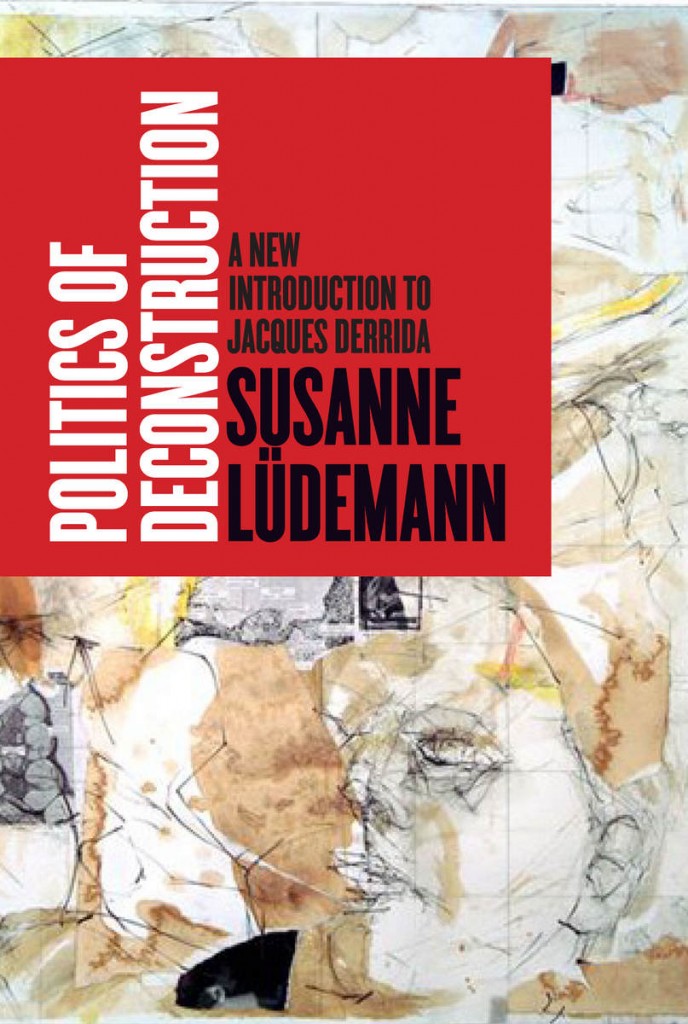
“The book offers a new introduction to Jacques Derrida and to Deconstruction as an important strand of Continental Philosophy. From his early writings on phenomenology and linguistics to his later meditations on war, terrorism, and justice, Jacques Derrida (1930–2004) achieved prominence on an international scale by addressing as many different audiences as he did topics. Yet despite widespread acclamation, his work has never been considered easy. Rendering accessible debates that marked more than four decades of engagement and inquiry, Susanne Lüdemann traces connections between the philosopher’s own texts and those of his many interlocutors, past and present.
Unlike conventional introductions, Politics of Deconstruction offers a number of personal approaches to reading Derrida and invites readers to find their own. Emphasizing the relationship between philosophy and politics, it shows that, with Deconstruction, there is much more at stake than an “academic” discussion, for Derrida’s work deals with all the burning political and intellectual challenges of our time. The author’s own professional experience in both the United States and in Europe, which particularly inform her chapter on Derrida’s reception in the United States, opens a unique perspective on a unique thinker, one that rewards specialists and newcomers alike.”
Buy it here.
#52 The Most Sublime Hysteric
By Slavoj Zizek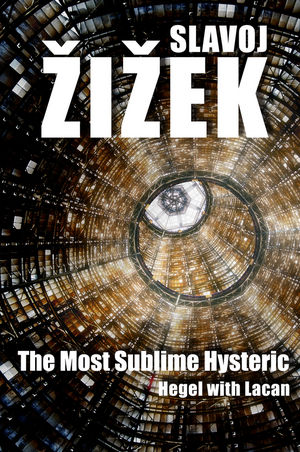
“What do we know about Hegel? What do we know about Marx? What do we know about democracy and totalitarianism? Communism and psychoanalysis? What do we know that isn’t a platitude that we’ve heard a thousand times – or a self-satisfied certainty? Through his brilliant reading of Hegel, Slavoj Zizek – one of the most provocative and widely-read thinkers of our time – upends our traditional understanding, dynamites every cliché and undermines every conviction in order to clear the ground for new ways of answering these questions.
When Lacan described Hegel as the ‘most sublime hysteric’, he was referring to the way that the hysteric asks questions because he experiences his own desire as if it were the Other’s desire. In the dialectical process, the question asked of the Other is resolved through a reflexive turn in which the question begins to function as its own answer. We had made Hegel into the theorist of abstraction and reaction, but by reading Hegel with Lacan, Zizek unveils a Hegel of the concrete and of revolution – his own, and the one to come.
This early and dazzlingly original work by Zizek offers a unique insight into the ideas which have since become hallmarks of his mature thought. It will be of great interest to anyone interested in critical theory, philosophy and contemporary social thought.”
Buy it here.
#53 Red Skin White Masks
By Glen Sean Coulthard“Glen Sean Coulthard challenges recognition as a method of organizing difference and identity in liberal politics, questioning the assumption that contemporary difference and past histories of destructive colonialism between the state and Indigenous peoples can be reconciled through a process of acknowledgment. He examines an alternative politics, seeking to revalue, reconstruct, and redeploy Indigenous cultural practices based on self-recognition.”
Buy it here.
#54 Against Old Europe: Critical Theory and Alter-Globalization Movements
By Raphael Schlembach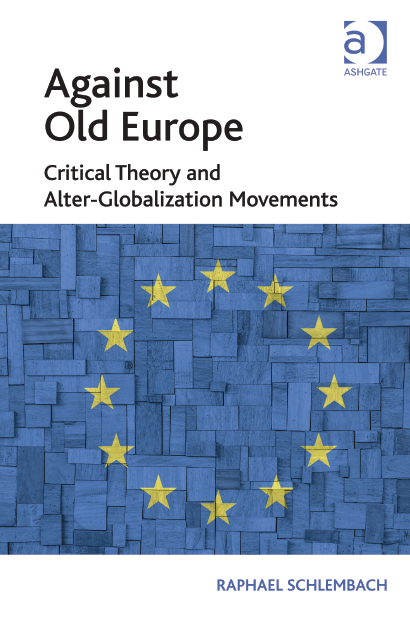 “In
the wake of the Iraq war, the term Old Europe was appropriated by
politicians, civil society and social movement actors alike to rally in
defence of supposedly social and civilized values against the perceived
predatory forces of American finance.
“In
the wake of the Iraq war, the term Old Europe was appropriated by
politicians, civil society and social movement actors alike to rally in
defence of supposedly social and civilized values against the perceived
predatory forces of American finance.Against Old Europe sheds light on the social movement politics encapsulated in the protest slogan ‘Fight Old Europe’. Within what is broadly labelled the global justice movement, it explores a particular, radical perspective that warns against the identification with European values by movements resisting neoliberalism. Exploring the work of key theorists critical of globalization, including Habermas, Negri, Holloway, Postone and de Benoist, the book examines critical theory approaches to alter-globalization, illustrated with concrete examples of movements within contemporary Europe. In so doing, it invites readers to explore the charges of nationalism, anti-Americanism and antisemitism brought against parts of the alter-globalization movement.”
Buy it here.
#55 The Thing
By Dylan Trigg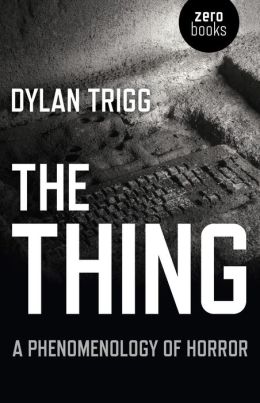
“What is the human body? Both the most familiar and unfamiliar of things, the body is the centre of experience but also the site of a prehistory anterior to any experience. Alien and uncanny, this other side of the body has all too often been overlooked by phenomenology. In confronting this oversight, Dylan Trigg’s The Thing redefines phenomenology as a species of realism, which he terms unhuman phenomenology. Far from being the vehicle of a human voice, this unhuman phenomenology gives expression to the alien materiality at the limit of experience.
By fusing the philosophies of Merleau-Ponty, Husserl, and Levinas with the horrors of John Carpenter, David Cronenberg, and H.P. Lovecraft, Trigg explores the ways in which an unhuman phenomenology positions the body out of time. At once a challenge to traditional notions of phenomenology, The Thing is also a timely rejoinder to contemporary philosophies of realism. The result is nothing less than a rebirth of phenomenology as redefined through the lens of horror.”
Buy it here.
#56 On Doubt
By Vilem Flusser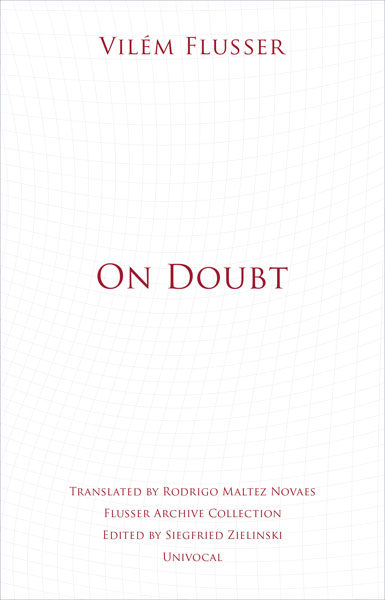
“In On Doubt, Vilém Flusser refines Martin Heidegger’s famous declaration that “language is the dwelling of Being.” For Flusser, “the word is the dwelling of being,” because in fact, in the beginning, there was the word.
On Doubt is a treatise on the human intellect, its relation to language, and the reality-forming discourses that subsequently emerge. For Flusser, the faith that the modern age places in Cartesian doubt plays a role similar to the one that faith in God played in previous eras—a faith that needs to be challenged. Descartes doubts the world through his proposition cogito ergo sum, but leaves doubt itself untouched as indubitable and imperious. His cogito ergo sum may have proved to the Western intellect that thoughts exist, but it did not prove the existence of that which thinks: one can eliminate thinking and yet continue being.”
Buy it here.
#57 Hölderlin’s Hymns: “Germania” and “The Rhine”
By Martin Heidegger
“Martin Heidegger’s 1934–1935 lectures on Friedrich Hölderlin’s hymns “Germania” and “The Rhine” are considered the most significant among Heidegger’s lectures on Hölderlin. Coming at a crucial time in his career, the text illustrates Heidegger’s turn toward language, art, and poetry while reflecting his despair at his failure to revolutionize the German university and his hope for a more profound revolution through the German language, guided by Hölderlin’s poetry. These lectures are important for understanding Heidegger’s changing relation to politics, his turn toward Nietzsche, his thinking about the German language, and his breakthrough to a new kind of poetic thinking. First published in 1980 as volume 39 of Heidegger’s Complete Works, this graceful and rigorous English-language translation will be widely discussed in continental philosophy and literary theory.”
Buy it here.
#58 Comradely Greetings
By Slavoj Zizek and Nadya Tolokonnikova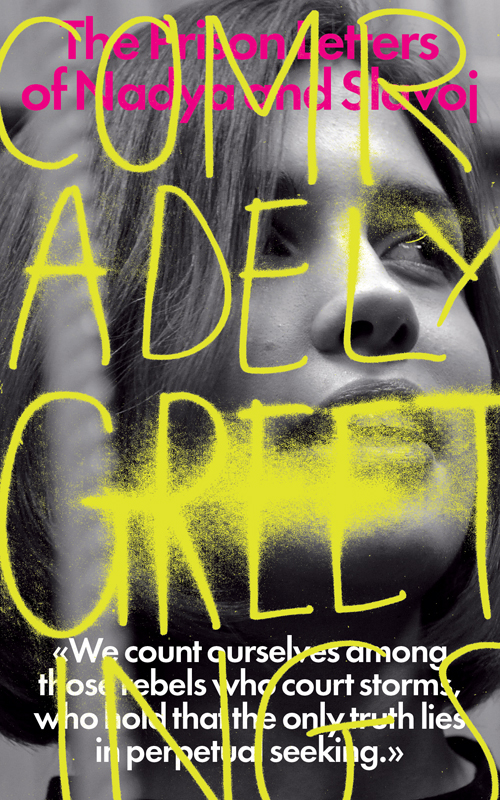
“In an extraordinary exchange of letters, Nadezhda Tolokonnikova, imprisoned for taking part in Pussy Riot’s anti-Putin performance, and Slovenian philosopher Slavoj Žižek discuss artistic subversion, political activism, and the future of democracy via the ideas of Hegel, Deleuze, Nietzsche, and even Laurie Anderson.
Two radicals, one in a Russian forced labor camp, the other writing to her from far outside its walls, show passionately – across linguistic and generational divides – that “there is still a common cause worth fighting for.” Touching, erudite, and worldly, their correspondence unfolds with poetic urgency.”
Buy it here, or read the Critical-Theory review.
#59 Poetic Force: Poetry After Kant
By Kevin McLaughlin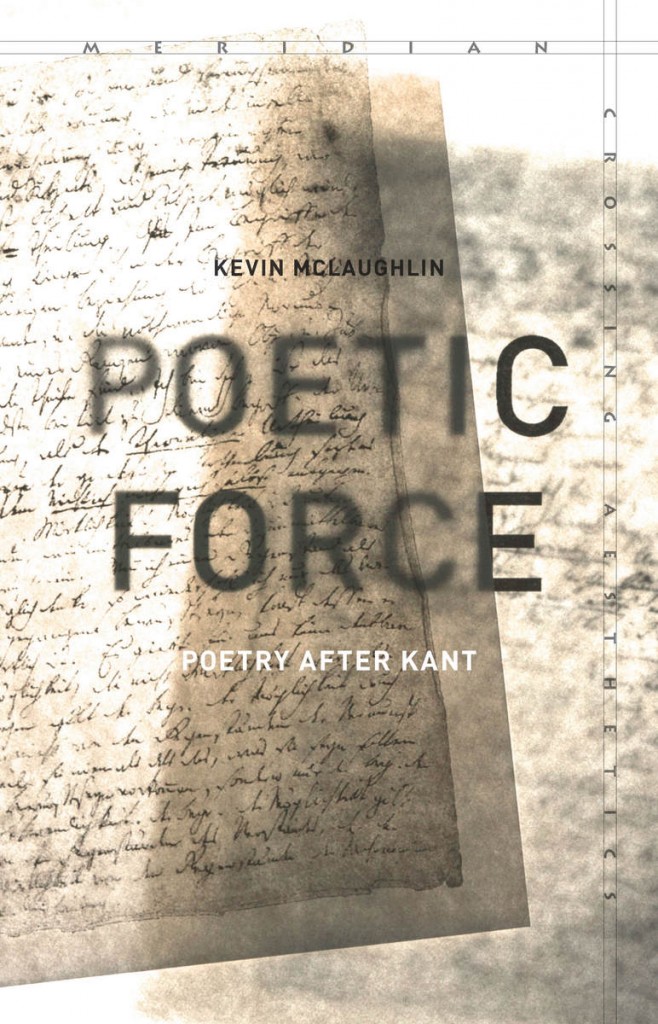
“This book argues that the theory of force elaborated in Immanuel Kant’s aesthetics (and in particular, his theorization of the dynamic sublime) is of decisive importance to poetry in the nineteenth century and to the connection between poetry and philosophy over the last two centuries. Inspired by his deep engagement with the critical theory of Walter Benjamin, who especially developed this Kantian strain of thinking, Kevin McLaughlin uses this theory of force to illuminate the work of three of the most influential nineteenth-century writers in their respective national traditions: Friedrich Hölderlin, Charles Baudelaire, and Matthew Arnold. The result is a fine elucidation of Kantian theory and a fresh account of poetic language and its aesthetic, ethical, and political possibilities.”
Buy it here.
#60 Shakespeare and Continental Philosophy
Edited by Jennifer Bates and Richard Wilson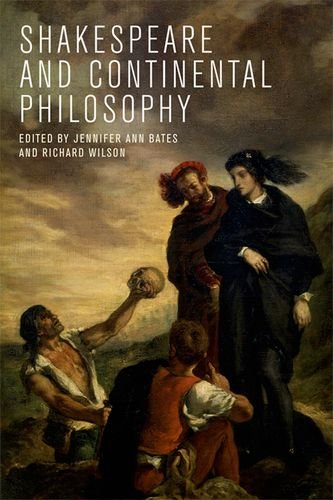
“This collection of 15 essays by celebrated authors in Shakespeare studies and in continental philosophy develops different aspects of the interface between continental thinking and Shakespeare’s plays. The authors draw from current continental philosophy (e.g. Lacan, Foucault, Derrida) as well as from the 19th century continental tradition (e.g. Hegel, Kierkegaard) and from the early roots of continental tradition (e.g. Aristotle, Ibn Sina). The chapters address the span of the tragedies, comedies and history plays in the light of thinkers as diverse as Aristotle, Ibn Sina and Jean-Luc Marion, Hegel, Kierkegaard, Schopenhauer, Schmitt, Arendt, Lacan, Levinas, Foucault and Derrida.”
Buy it here.
#61 The Philosophy of War and Exile
By Nolen Gertz
“Arguing that the suffering of combatants is better understood through philosophy than psychology, as not trauma, but exile, this book investigates the experiences of torturers, drone operators, cyberwarriors, and veterans to reveal not only the exile at the core of becoming a combatant, but the evasion from exile at the core of being a noncombatant. From exploring the phenomenological philosophy of J. Glenn Gray to investigating the existential meaning of Rambo, this book focuses not on our current question of how to return veterans to our everyday way of life, but rather on the question of what it means for our everyday way of life that they call alienating what we call home.”
Buy it here.
#62 Globes: Spheres Volume 2
By Peter Sloterdijk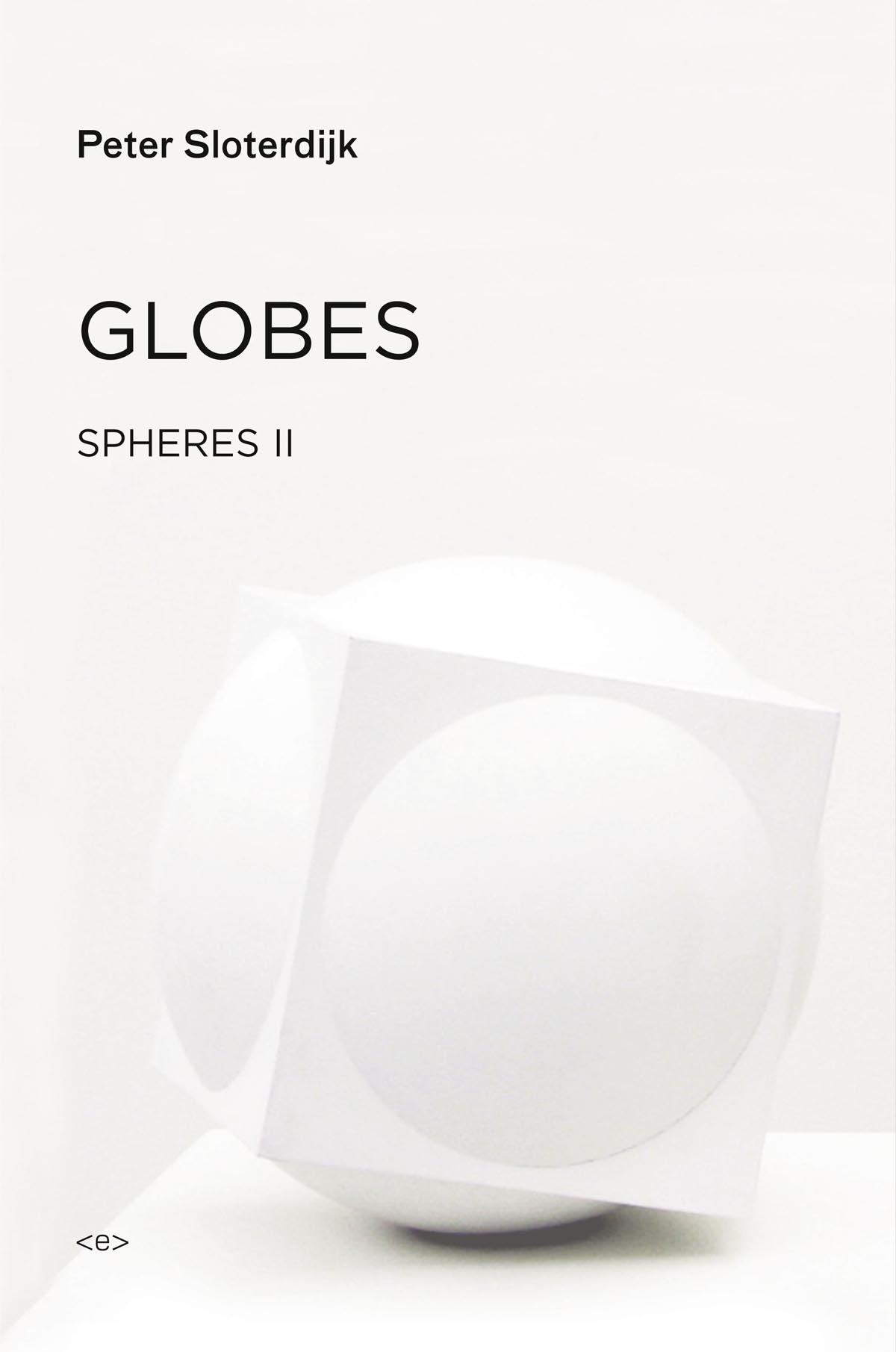
“In Globes—the second, and longest, volume in Peter Sloterdijk’s celebrated magnum opus Spheres trilogy—the author attempts nothing less than to uncover the philosophical foundations of the political history—the history of humanity—of the last two thousand years. The first, well-received volume of the author’s Spheres trilogy, Bubbles, dealt with microspheres: the fact that individuals, from the fetal stage to childhood, are never alone, because they always incorporate the Other into themselves and align themselves with it. With Globes, Sloterdijk opens up a history of the political world using the morphological models of the orb and the globe, and argues that all previous statements about globalization have suffered from shortsightedness. For him, globalization begins with the ancient Greeks, who represented the whole world through the shape of the orb. With the discovery of America and the first circumnavigations of the earth, the orb was replaced by the globe. This second globalization is currently giving way to the third, which we are living through today, as the general virtuality of all conditions leads to a growing spatial crisis.”
Buy it here.
#63 Absolute Recoil
By Slavoj Zizek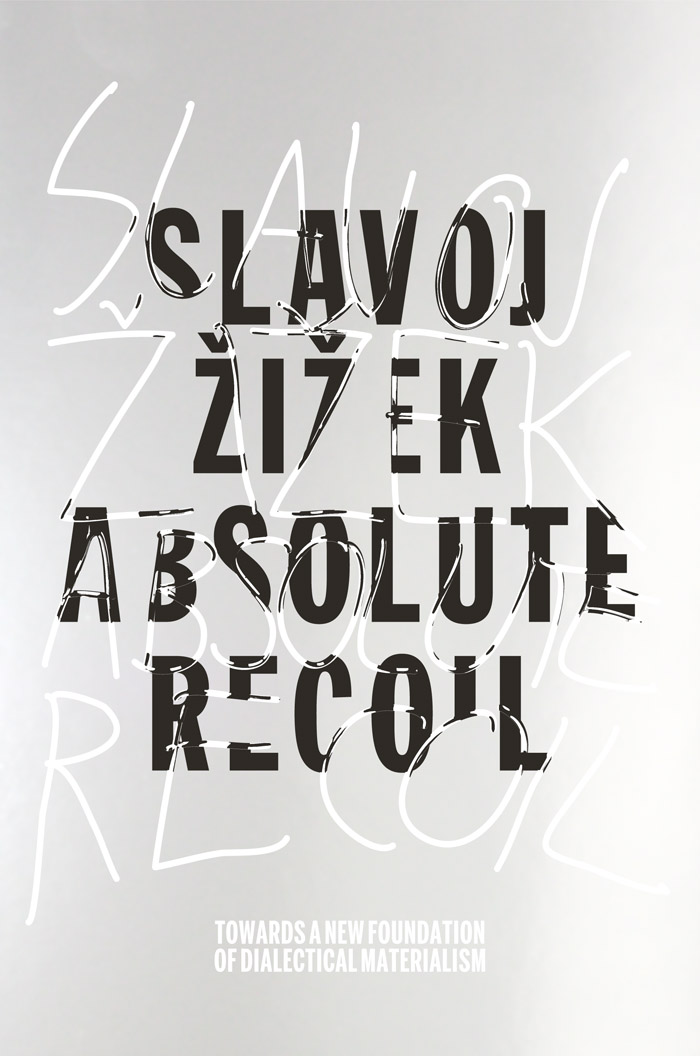
“Philosophical materialism in all its forms – from scientific naturalism to Deleuzian New Materialism – has failed to meet the key theoretical and political challenges of the modern world. This is the burden of philosopher Slavoj Žižek’s argument in this pathbreaking and eclectic new work. Recent history has seen developments such as quantum physics and Freudian psychoanalysis, not to speak of the failure of twentieth-century communism, shake our understanding of existence.
In the process, the dominant tradition in Western philosophy lost its moorings. To bring materialism up to date, Žižek – himself a committed materialist and communist – proposes a radical revision of our intellectual heritage. He argues that dialectical materialism is the only true philosophical inheritor of what Hegel designated the “speculative” approach in thought.”
Buy it here.
#64 Radio Benjamin
By Walter Benjamin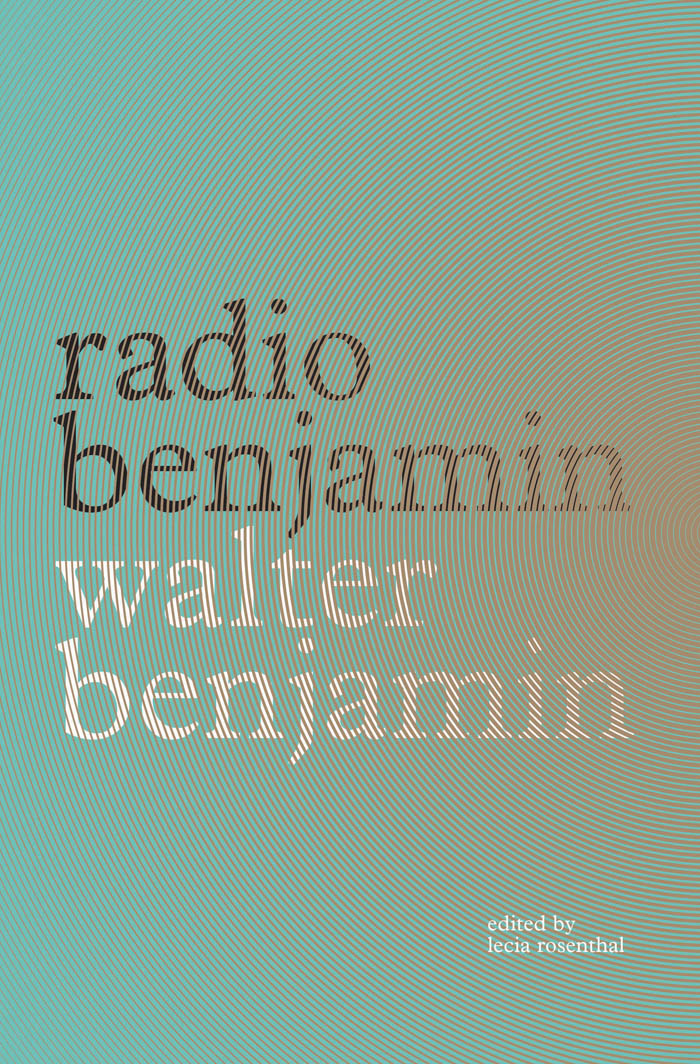
“Walter Benjamin was fascinated by the impact of new technology on culture, an interest that extended beyond his renowned critical essays. From 1927 to ’33, he wrote and presented something in the region of eighty broadcasts using the new medium of radio. Radio Benjamin gathers the surviving transcripts, which appear here for the first time in English. This eclectic collection demonstrates the range of Benjamin’s thinking and his enthusiasm for popular sensibilities. His celebrated “Enlightenment for Children” youth programs, his plays, readings, book reviews, and fiction reveal Benjamin in a creative, rather than critical, mode. They flesh out ideas elucidated in his essays, some of which are also represented here, where they cover topics as varied as getting a raise and the history of natural disasters, subjects chosen for broad appeal and examined with passion and acuity.”
Buy it here, or read the Critical-Theory review.
#65 The World of Freedom
By Robert Nichols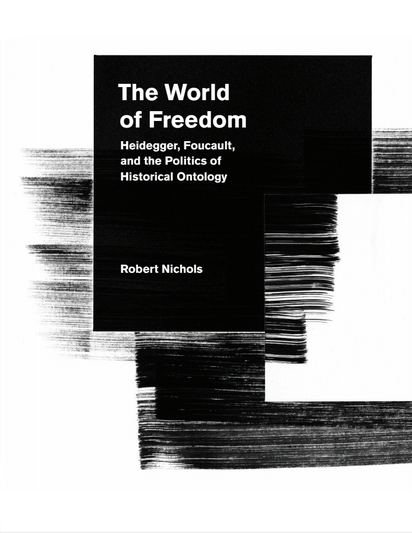
“Martin Heidegger and Michel Foucault are two of the most important and influential thinkers of the twentieth century. Each has spawned volumes of secondary literature and sparked fierce, polarizing debates, particularly about the relationship between philosophy and politics. And yet, to date there exists almost no work that presents a systematic and comprehensive engagement of the two in relation to one another. The World of Freedom addresses this lacuna.
Buy it here.
#66 The Spectre of Capital
By Joseph Vogl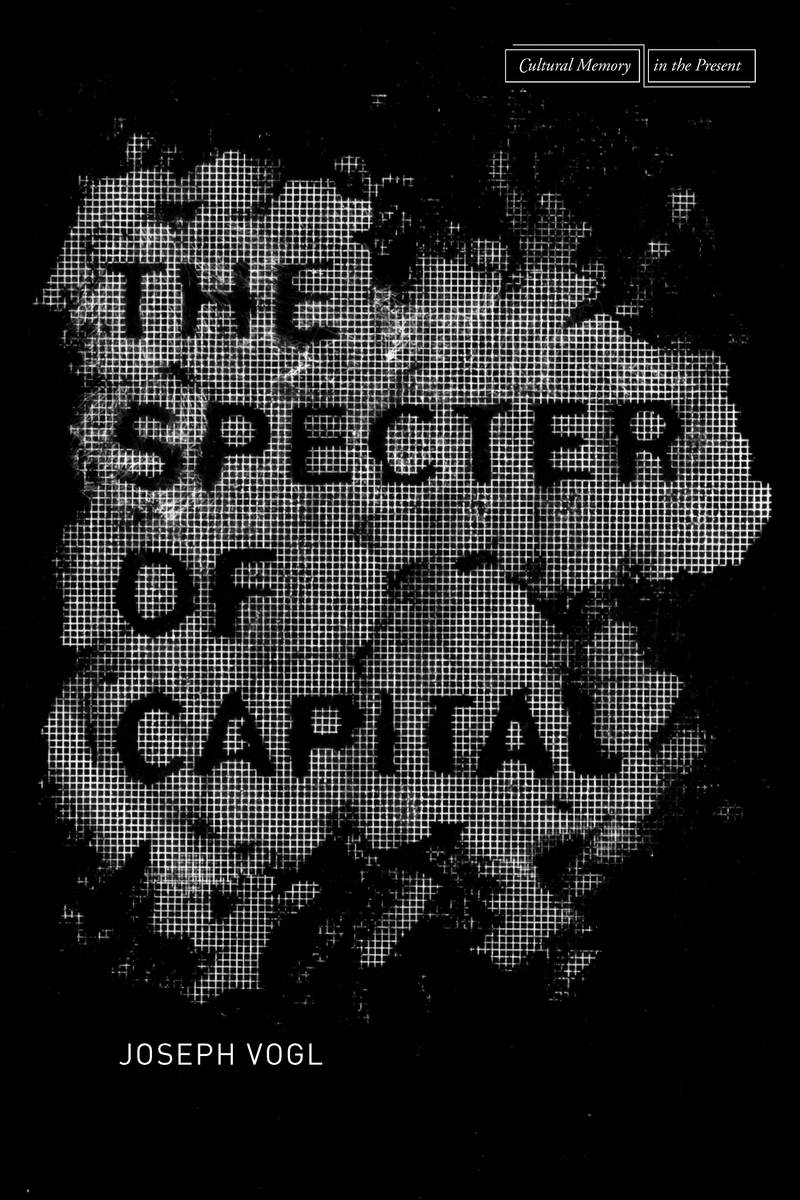
“In his brilliant interdisciplinary analysis of the global financial crisis, Joseph Vogl aims to demystify finance capitalism—with its bewildering array of new instruments—by tracing the historical stages through which the financial market achieved its current autonomy. Classical and neoclassical economic theorists have played a decisive role here. Ignoring early warnings about the instability of speculative finance markets, they have persisted in their belief in the inherent equilibrium of the market, describing even major crises as mere aberrations or adjustments and rationalizing dubious financial practices that escalate risk while seeking to manage it.”
Buy it here.
#67 The Intervals of Cinema
By Jacques Ranciere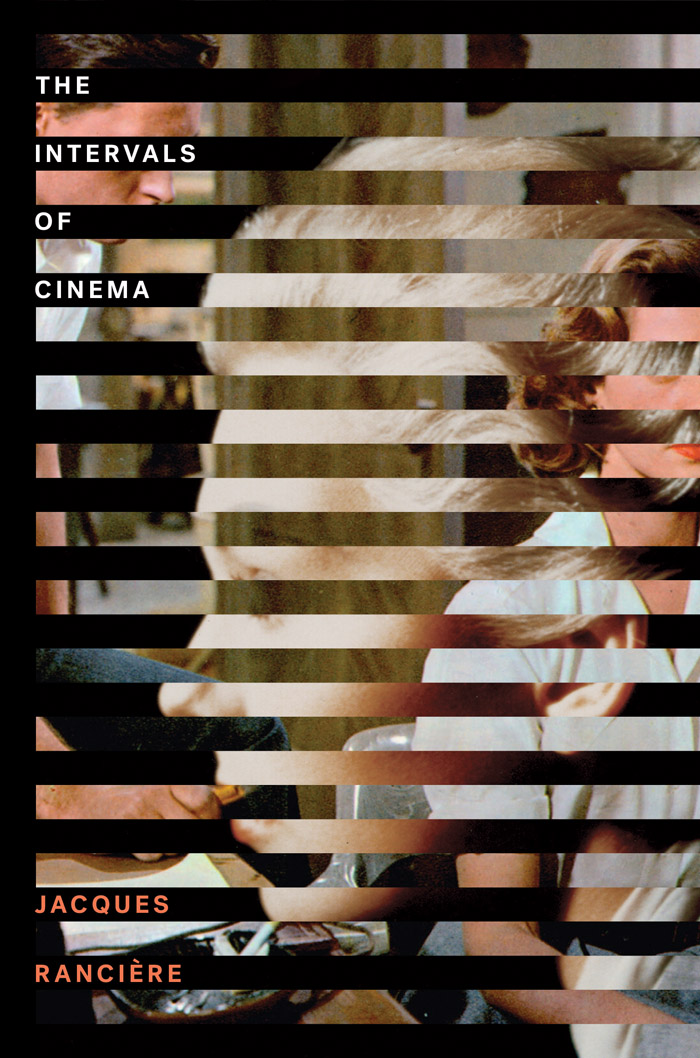
“Cinema, like language, can be said to exist as a system of differences. In his latest book, acclaimed philosopher Jacques Rancière looks at cinematic art in comparison to its corollary forms in literature and theatre. From literature, he argues, cinema takes its narrative conventions, while at the same time effacing literature’s images and philosophy; and film rejects theatre, while also fulfilling theatre’s dream.
Built on these contradictions, the cinema is the real, material space
in which one is moved by the spectacle of shadows. Thus, for Rancière,
film is the perpetually disappointed dream of a language of images.”
Buy it here.
Buy it here.
#68 The End of the World and Other Teachable Moments
By Michael Naas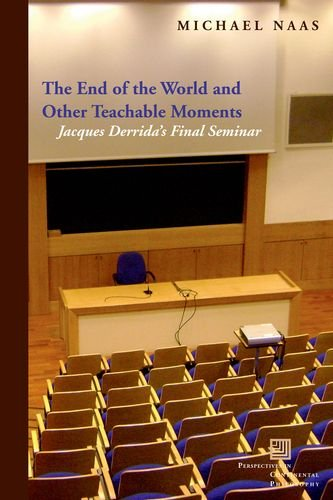
“The End of the World and Other Teachable Moments follows the remarkable itinerary of Jacques Derrida’s final seminar, “The Beast and the Sovereign” (2001–3), as the explicit themes of the seminar—namely, sovereignty and the question of the animal—come to be supplemented and interrupted by questions of death, mourning, survival, the archive, and, especially, the end of the world.
The book begins with Derrida’s analyses, in the first year of the seminar, of the question of the animal in the context of his other published works on the same subject. It then follows Derrida through the second year of the seminar, presented in Paris from December 2002 to March 2003, as a very different tone begins to make itself heard, one that wavers between melancholy and an extraordinary lucidity with regard to the end. Focusing the entire year on just two works, Daniel Defoe’s Robinson Crusoe and Martin Heidegger’s seminar of 1929–30, “The Fundamental Concepts of Metaphysics,” the seminar comes to be dominated by questions of the end of the world and of an originary violence that at once gives rise to and effaces all thing”
Buy it here.
#69 Giorgi Agamben: Beyond the Threshold of Deconstruction
By Kevin Attell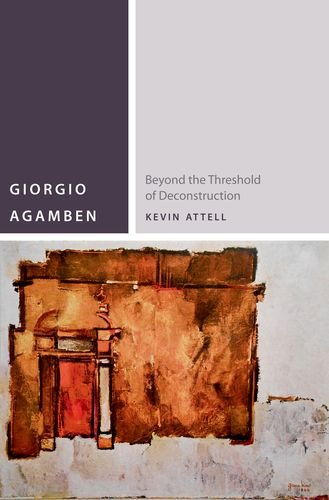
“Agamben’s thought has been viewed as descending primarily from the work of Heidegger, Benjamin, and, more recently, Foucault. This book complicates and expands that constellation by showing how throughout his career Agamben has consistently and closely engaged (critically, sympathetically, polemically, and often implicitly) the work of Derrida as his chief contemporary interlocutor.
The book begins by examining the development of Agamben’s key concepts—infancy, Voice, potentiality—from the 1960s to approximately 1990 and shows how these concepts consistently draw on and respond to specific texts and concepts of Derrida. The second part examines the political turn in Agamben’s and Derrida’s thinking from about 1990 onward, beginning with their investigations of sovereignty and violence and moving through their parallel treatments of juridical power, the relation between humans and animals, and finally messianism and the politics to come.”
Buy it here.
#70 Nietzsche and the Becoming of Life
By Vanessa Lemm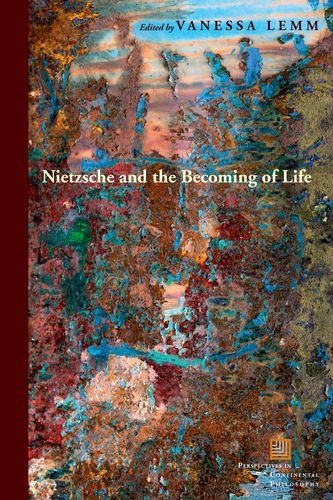
“Throughout his writing career Nietzsche advocated the affirmation of earthly life as a way to counteract nihilism and asceticism. This volume takes stock of the complexities and wide-ranging perspectives that Nietzsche brings to bear on the problem of life’s becoming on Earth by engaging various interpretative paradigms reaching from existentialist to Darwinist readings of Nietzsche.
In an age in which the biological sciences claim to have unlocked the deepest secrets and codes of life, the essays in this volume propose a more skeptical view. Life is both what is closest and what is furthest from us, because life experiments through us as much as we experiment with it, because life keeps our thinking and our habits always moving, in a state of recurring nomadism. Nietzsche’s philosophy is perhaps the clearest expression of the antinomy contained in the idea of “studying” life and in the Socratic ideal of an “examined” life and remains a deep source of wisdom about living.”
Buy it here.
#71 Hegel: Key Concepts
By Michael Baur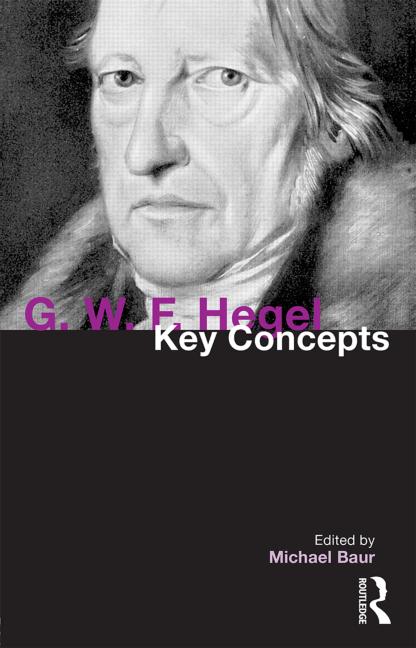
“The thought of G. W. F. Hegel (1770 -1831) has had a deep and lasting influence on a wide range of philosophical, political, religious, aesthetic, cultural and scientific movements. But, despite the far-reaching importance of Hegel’s thought, there is often a great deal of confusion about what he actually said or believed.
G. W. F. Hegel: Key Concepts provides an accessible introduction to both Hegel’s thought and Hegel-inspired philosophy in general, demonstrating how his concepts were understood, adopted and critically transformed by later thinkers. The first section of the book covers the principal philosophical themes in Hegel’s system: epistemology, metaphysics, philosophy of mind, ethical theory, political philosophy, philosophy of nature, philosophy of art, philosophy of religion, philosophy of history and theory of the history of philosophy. The second section covers the main post-Hegelian movements in philosophy: Marxism, existentialism, pragmatism, analytic philosophy, hermeneutics and French poststructuralism.”
Buy it here.
#72 Night of the World
By Frank Smecker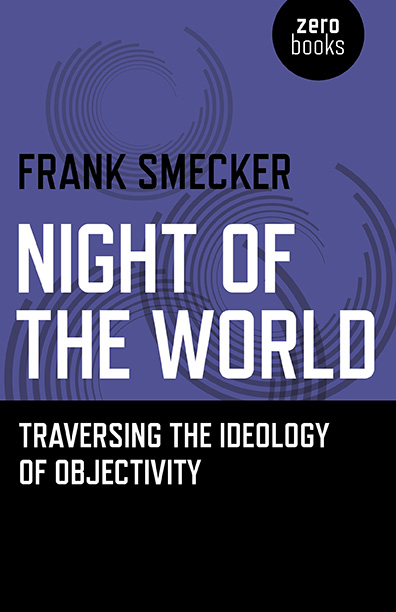
“By situating objectivity at the level of ideology, while placing it within a dynamic, experimental and, at times, unorthodox interplay with Hegelian and Lacanian philosophy, The Night of the World offers a unique and radical re-thinking of objectivity. Encompassing a constellational array of wide-ranging subjects, from popular culture, politics, history, science, and philosophy, while deploying an engaging prose that is both incisive and seamlessly tangential, Smecker is both an ally with, and emerging voice in, the field of Zizekian dialectics. Incorporating Zizek’s philosophy, Smecker speculates over both objectivity and ideology, evoking methods of thought not so prevalent since German Idealism was all the rage. In the spirit of Kierkegaard, The Night of the World is the result of an imaginative hypothesis. And that is only the half of it. Written in a style that will undoubtedly leave the reader itching to read it again once finished, The Night of the World is an ongoing engagement with an abundance of additional postulations, whose sole purpose is to produce more products of thought.”
Buy it here.
#73 Laruelle: Against the Digital
By Alexander R. Galloway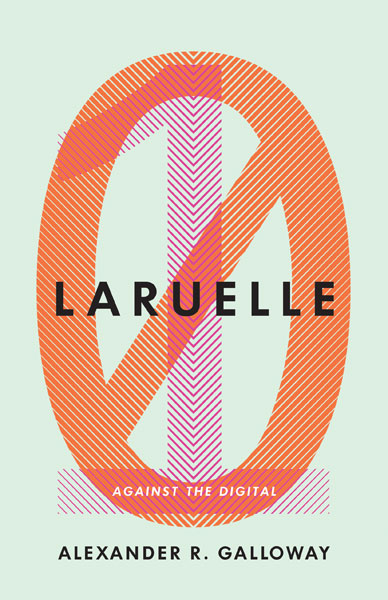
“Laruelle is one of the first books in English to undertake in an extended critical survey the work of the idiosyncratic French thinker François Laruelle, the promulgator of non-standard philosophy. Laruelle, who was born in 1937, has recently gained widespread recognition, and Alexander R. Galloway suggests that readers may benefit from colliding Laruelle’s concept of the One with its binary counterpart, the Zero, to explore more fully the relationship between philosophy and the digital. ”
Buy it here.
#74 The Feminine Symptom
By Emanuala Bianchi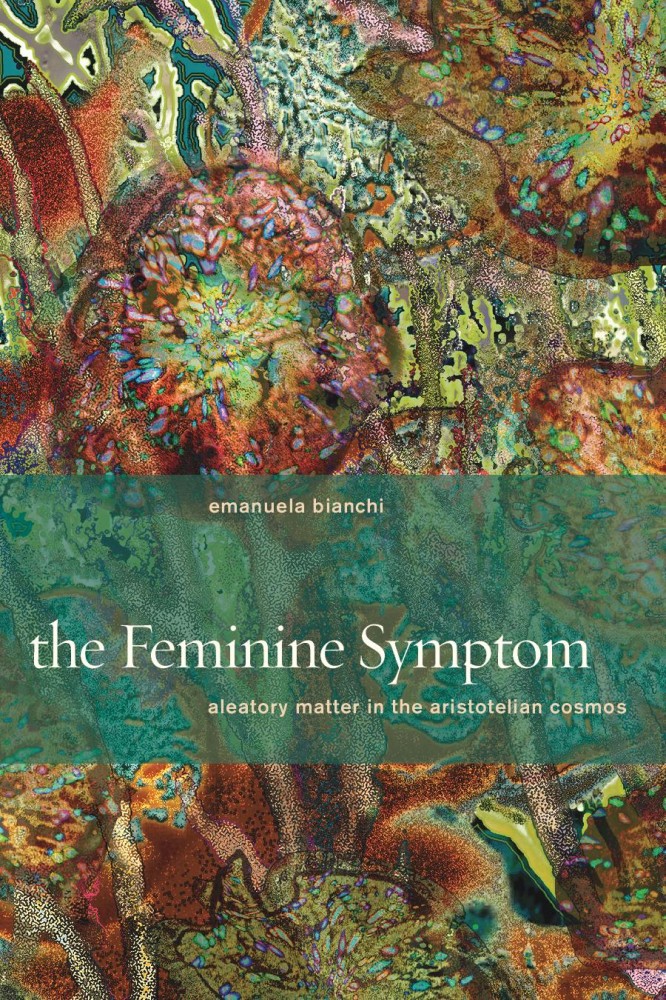
“The Feminine Symptom takes as its starting point the problem of female offspring for Aristotle: If form is transmitted by the male and the female provides only matter, how is a female child produced? Aristotle answers that there must be some fault or misstep in the process.
This inexplicable but necessary coincidence—sumptoma in Greek—defines the feminine symptom. Departing from the standard associations of male-activity-form and female-passivity-matter, Bianchi traces the operation of chance and spontaneity throughout Aristotle’s biology, physics, cosmology, and metaphysics and argues that it is not passive but aleatory matter— unpredictable, ungovernable, and acting against nature and teleology—that he continually allies with the feminine.”
Buy it here.
#75 Tragedy of Fatherhood
By Silke-Maria Weineck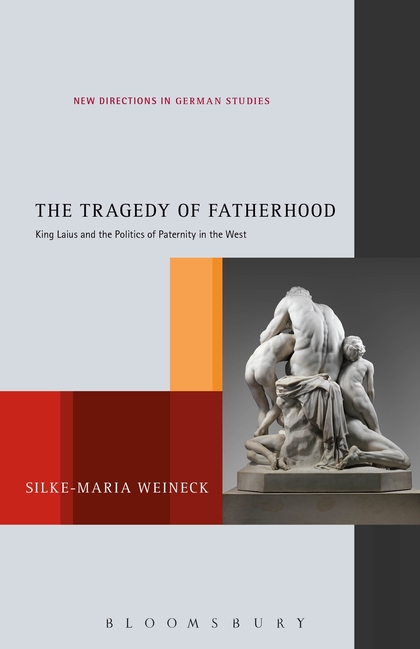
“Theories of power have always been intertwined with theories of fatherhood: paternity is the oldest and most persistent metaphor of benign, legitimate rule. The paternal trope gains its strength from its integration of law, body, and affect-in the affirmative model of fatherhood, the biological father, the legal father, and the father who protects and nurtures his children are one and the same, and in a complex system of mutual interdependence, the father of the family is symbolically linked to the paternal gods of monotheism and the paternal ruler of the monarchic state.
If tragedy is the violent eruption of a necessary conflict between competing, legitimate claims, The Tragedy of Fatherhood argues that fatherhood is an essentially tragic structure. “
Buy it here.
#76 Ontology in Heidegger and Deleuze
By Gavin Rae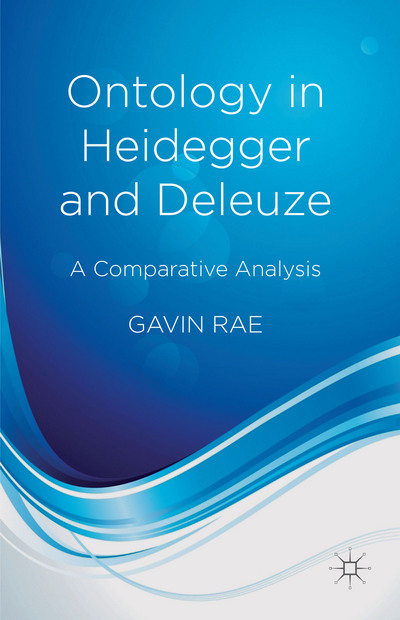
“This groundbreaking book engages with the relationship between ontology, metaphysics, and epistemology in Heidegger and Deleuze. Showing that the latter are rooted in their respective ontologies not only provides a clear, detailed, and holistic outline of all three, but also reveals that Heidegger and Deleuze are highly critical of thinking that associates being with identity. While they both seek to overcome this association by affirming being as becoming, they differ in terms of what this becoming entails with Deleuze’s onto-genetic account of being’s rhizomic-becoming going beyond Heidegger’s temporal account. However, while Deleuze attempts to think as and from difference, the relationship between identity and difference is explored to offer a tri-partite account of identity that shows that, despite his claims to the contrary, Deleuze’s ontological categories continue to depend on a form of the identity he aims to overcome.”
Buy it here.
#77 Ricoeur and the Post-Structuralists
By Johann Mitchell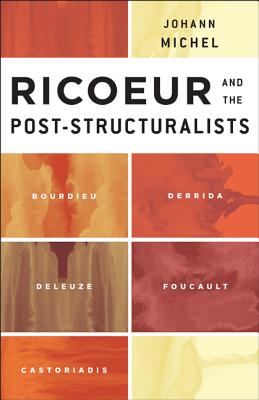
“In this important and original book, Johann Michel paves the way for a greater understanding of Paul Ricoeur’s philosophy by exploring it in relation to some major figures of contemporary French thought—Bourdieu, Derrida, Deleuze, Foucault and Castoriadis.”
Buy it here.
#78 Phenomena, Critique, Logos
By Michael Marder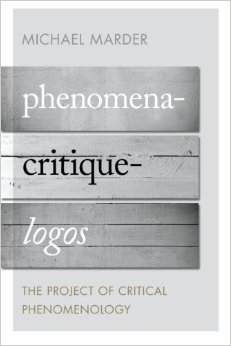
“Phenomena-Critique-Logos challenges this assumption and endeavors to work out a systematic concept of critique, using the resources of phenomenology itself. In this innovative work, Michael Marder argues that critique is situated at the very heart of phenomenology, traversing the Husserlian oeuvre and regulating the relation between phenomena and logos, conceived in its multiple senses as reason, logic, a mode of thinking, study and word. Having outlined the features of phenomenology as a kind of critique, Marder goes on to demonstrate how it is applicable to ontology, ethics and politics, through sustained readings of Heidegger, Levinas, Arendt and Derrida, as well as through an original elaboration of phenomenological critique pertinent to each of these fields.”
Buy it here.
#79 Lacan Deleuze Badiou
By A. J. Bartlett, Justin Clemens and Jon Roffe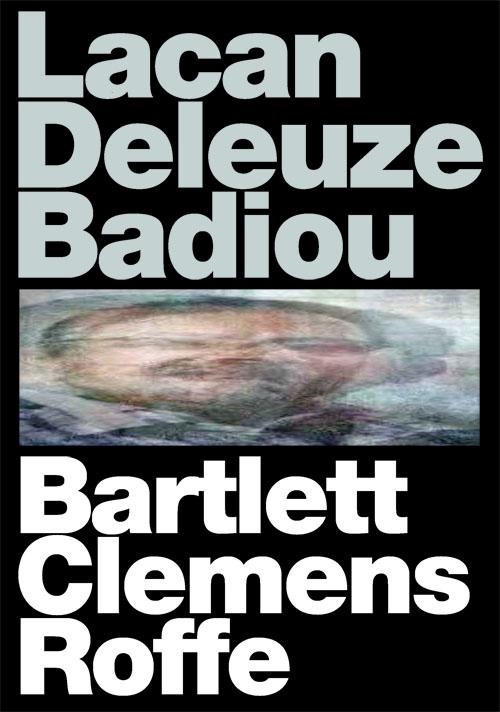
“The theoretical writings of Jacques Lacan, Gilles Deleuze and Alain Badiou stand at the heart of contemporary European thought. While the combined corpus of these three figures contains a significant number of references to each other’s work, such references are often simply critical, obscure – or both. Lacan Deleuze Badiou guides us through these crucial, under-remarked interrelations, identifying the conceptual passages, connections and disjunctions that underlie the often superficial statements of critique, indifference or agreement.
Working through the rubrics of the contemporary, time, the event and truth, Bartlett, Clemens and Roffe present a new, lucid account of where these three thinkers stand in relation to one another and why their nexus remains unsurpassed as a point of reference for contemporary thought itself.”
Buy it here.
#80 Badiou and the Political Condition
Edited by Marios Constantinou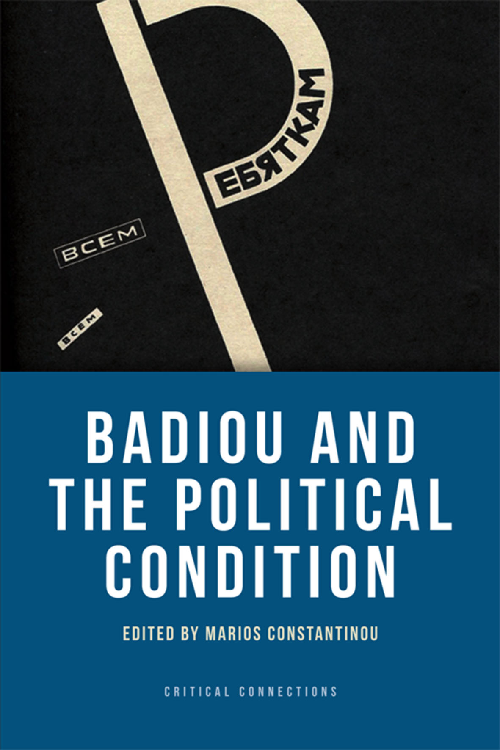
The 11 essays in this volume, including a new piece by Badiou himself, reflect the formative traditions that shape the background of his political thought. They intervene critically and evaluate the present state of Badiou’s work, while also breaking new ground and creating new thresholds of political thought.
The contributors are a range of established scholars and rising theorists of the Badiou-effect. Each engages with the critical question of ‘how to transmit the exception’ politically. at the intersection of contemporary anti-imperial polemics and debates that strike at the heart of the post-modern condition (Lyotard), deconstruction (Derrida), psychoanalysis (Lacan – Zizek), biopolitics (Hardt and Negri) and pedagogy (Rancière).”
Buy it here.
#81 The Zizek Dictionary
Edited by Rex Butler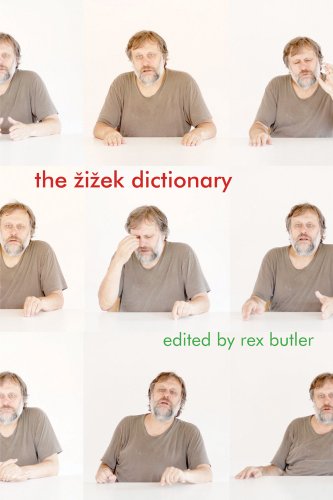
“Slavoj Žižek is the most popular and discussed philosopher in the world today. His prolific writings – across philosophy, psychoanalysis, political and social theory, film, music and religion – always engage and provoke. The power of his ideas, the breadth of his references, his capacity for playfulness and confrontation, his willingness to change his mind and his refusal fundamentally to alter his argument – all have worked to build an extraordinary international readership as well as to elicit much critical reaction. The Žižek Dictionary brings together leading Žižek commentators from across the world to present a companion and guide to Žižekian thought. Each of the 60 short essays examines a key term and, crucially, explores its development across Žižek’s work and how it fits in with other concepts and concerns. The dictionary will prove invaluable both to readers coming to Žižek for the first time and to those already embarked on the Žižekian journey.”
Buy it here.
#82 Breathing Race into the Machine
By Lundy Braun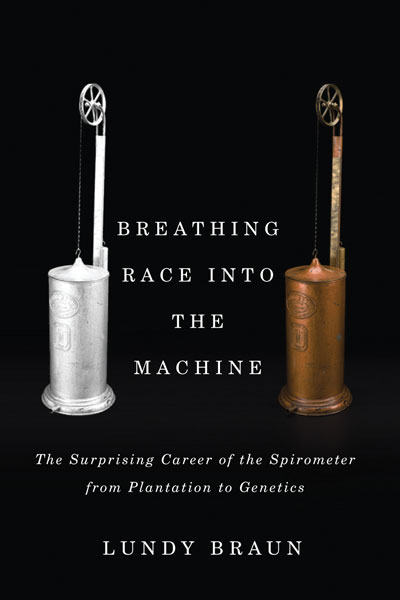
“In the antebellum South, plantation physicians used a new medical device—the spirometer—to show that lung volume and therefore vital capacity were supposedly less in black slaves than in white citizens. At the end of the Civil War, a large study of racial difference employing the spirometer appeared to confirm the finding, which was then applied to argue that slaves were unfit for freedom. What is astonishing is that this example of racial thinking is anything but a historical relic.
In Breathing Race into the Machine, science studies scholar Lundy Braun traces the little-known history of the spirometer to reveal the social and scientific processes by which medical instruments have worked to naturalize racial and ethnic differences, from Victorian Britain to today. Routinely a factor in in clinical diagnoses, preemployment physicals, and disability estimates, spirometers are often “race corrected,” typically reducing normal values for African Americans by 15 percent.
An unsettling account of the pernicious effects of racial thinking that divides people along genetic lines, Breathing Race into the Machine helps us understand how race enters into science and shapes medical research and practice.”
Buy it here.
#83 Liberalism: A Counter-History
By Domenico Losurdo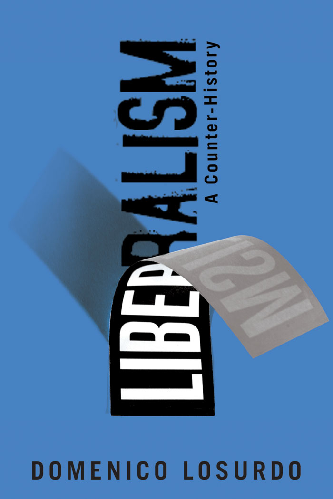
“In this definitive historical investigation, Italian author and philosopher Domenico Losurdo argues that from the outset liberalism, as a philosophical position and ideology, has been bound up with the most illiberal of policies: slavery, colonialism, genocide, racism and snobbery.
Narrating an intellectual history running from the eighteenth through to the twentieth centuries, Losurdo examines the thought of preeminent liberal writers such as Locke, Burke, Tocqueville, Constant, Bentham, and Sieyès, revealing the inner contradictions of an intellectual position that has exercised a formative influence on today’s politics. Among the dominant strains of liberalism, he discerns the counter-currents of more radical positions, lost in the constitution of the modern world order.”
Buy it here.
#84 The Intelligence of a Machine
By Jean Epstein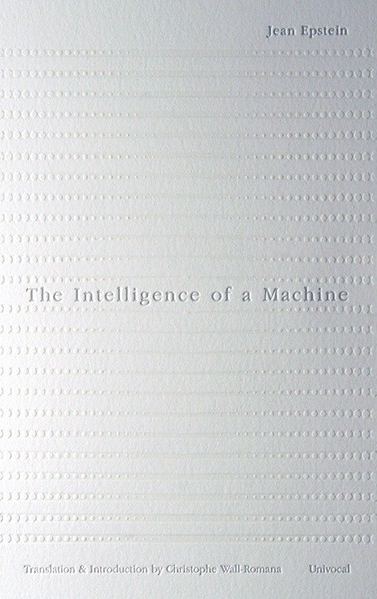
“The advent of the cinema radically altered our understanding of time, space, and reality. With his experience as a pioneering avant-garde filmmaker, Jean Epstein uses the universes created by the cinematograph to deconstruct our understanding of how time and space, reality and unreality, continuity and discontinuity, determinism and randomness function both inside and outside of the cinema. Time, he says, should be regarded as the first, and not the fourth, dimension — and the cinematograph allows us, for the first time, to manipulate it in directions and speeds of our choosing.
The theoretical work of Jean Epstein greatly influenced later generations of cinema philosophers, notably Gilles Deleuze and Jacques Rancière, but the bulk of his work remains unpublished. The Intelligence of a Machine, his first major title published in English, is one of the earliest philosophies of cinema.”
Buy it here.
#85 Anxiety
Jacques Lacan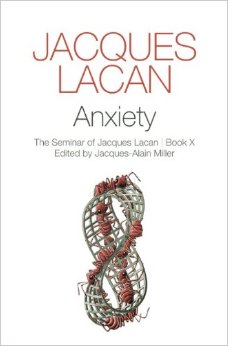
“In what was to be the last of his year-long seminars at Saint-Anne hospital, Lacan’s 1962-63 lessons form the keystone to this classic phase of his teaching. Here we meet for the first time the notorious a in its oral, anal, scopic and vociferated guises, alongside Lacan’s exploration of the question of the ‘analyst’s desire’. Arriving at these concepts from a multitude of angles, Lacan leads his audience with great care through a range of recurring themes such as anxiety between jouissance and desire, counter-transference and interpretation, and the fantasy and its frame.
This important volume, which forms Book X of The Seminar of Jacques Lacan, will be of great interest to students and practitioners of psychoanalysis and to students and scholars throughout the humanities and social sciences, from literature and critical theory to sociology, psychology and gender studies.”
Buy it here.
#86 Trouble in Paradise
Slavoj Zizek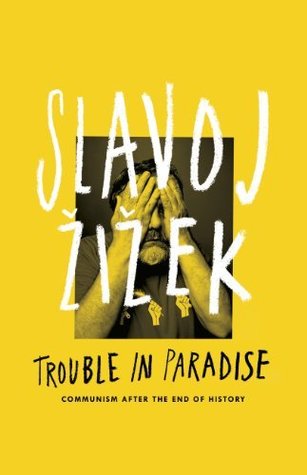
“In Trouble in Paradise, Slavoj Zizek, one of our most famous, most combative philosophers, explains how by drawing on the ideas of communism, we can find a way out of the crisis of capitalism. There is obviously trouble in the global capitalist paradise. But why do we find it so difficult to imagine a way out of the crisis we’re in? It is as if the trouble feeds on itself: the march of capitalism has become inexorable, the only game in town. Setting out to diagnose the condition of global capitalism, the ideological constraints we are faced with in our daily lives, and the bleak future promised by this system, Slavoj Zizek explores the possibilities – and the traps – of new emancipatory struggles. Drawing insights from phenomena as diverse as Gangnam Style to Marx, The Dark Knight to Thatcher, Trouble in Paradise is an incisive dissection of the world we inhabit, and the new order to come.”
Buy it here.
#87 Carl Schmitt: A Biography
By Reinhard Mehring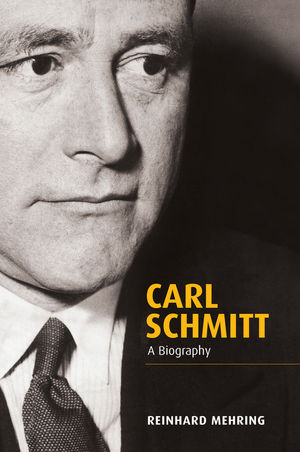
“Carl Schmitt is one of the most widely read and influential German thinkers of the twentieth century. His fundamental works on friend and enemy, legality and legitimacy, dictatorship, political theology and the concept of the political are read today with great interest by everyone from conservative Catholic theologians to radical political thinkers on the left.
In his private life, however, Schmitt was haunted by the demons of his wild anti-Semitism, his self-destructive and compulsive sexuality and his deep-seated resentment against the complacency of bourgeois life. As a young man from a modest background, full of social envy, he succeeded in making his way to the top of the academic discipline of law in Germany through his exceptional intellectual prowess. And yet he never felt at home in the academic establishment and among those of high social standing.”
Buy it here.
#88 Derrida: A Biography
By Benoit Peeters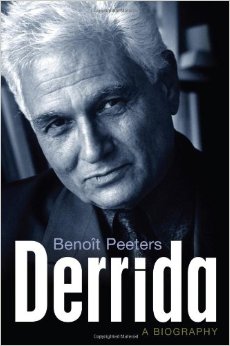
“This biography of Jacques Derrida (1930–2004) tells the story of a Jewish boy from Algiers, excluded from school at the age of twelve, who went on to become the most widely translated French philosopher in the world – a vulnerable, tormented man who, throughout his life, continued to see himself as unwelcome in the French university system.
In writing this compelling and authoritative biography, Benoît Peeters talked to over a hundred individuals who knew and worked with Derrida. He is also the first person to make use of the huge personal archive built up by Derrida throughout his life and of his extensive correspondence. Peeters’ book gives us a new and deeper understanding of the man who will perhaps be seen as the major philosopher of the second half of the twentieth century.”
Buy it here.
And the late-comers…
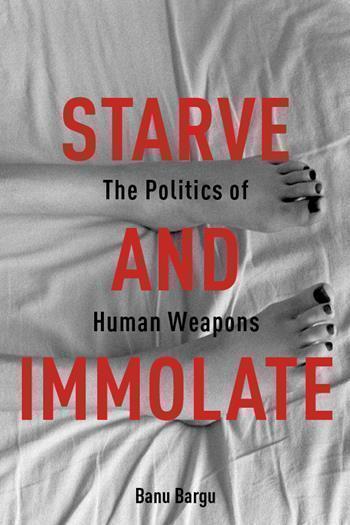
“Starve and Immolate tells the story of leftist political prisoners in Turkey who waged a deadly struggle against the introduction of high security prisons by forging their lives into weapons. Weaving together contemporary and critical political theory with political ethnography, Banu Bargu analyzes the death fast struggle as an exemplary though not exceptional instance of self-destructive practices that are a consequence of, retort to, and refusal of the increasingly biopolitical forms of sovereign power deployed around the globe.
Bargu chronicles the experiences, rituals, values, beliefs, ideological self-representations, and contentions of the protestors who fought cellular confinement against the background of the history of Turkish democracy and the treatment of dissent in a country where prisons have become sites of political confrontation. A critical response to Michel Foucault’s Discipline and Punish, Starve and Immolate centers on new forms of struggle that arise from the asymmetric antagonism between the state and its contestants in the contemporary prison. Bargu ultimately positions the weaponization of life as a bleak, violent, and ambivalent form of insurgent politics that seeks to wrench the power of life and death away from the modern state on corporeal grounds and in increasingly theologized forms. Drawing attention to the existential commitment, sacrificial morality, and militant martyrdom that transforms these struggles into a complex amalgam of resistance, Bargu explores the global ramifications of human weapons’ practices of resistance, their possibilities and limitations.”
Buy it here.
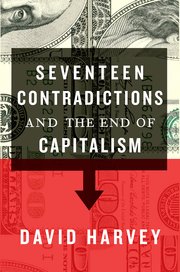
“In Seventeen Contradictions and the End of Capitalism, the eminent scholar David Harvey, author of A Brief History of Neoliberalism, examines the internal contradictions within the flow of capital that have precipitated recent crises. He contends that while the contradictions have made capitalism flexible and resilient, they also contain the seeds of systemic catastrophe. Many of the contradictions are manageable, but some are fatal: the stress on endless compound growth, the necessity to exploit nature to its limits, and tendency toward universal alienation. Capitalism has always managed to extend the outer limits through “spatial fixes,” expanding the geography of the system to cover nations and people formerly outside of its range. Whether it can continue to expand is an open question, but Harvey thinks it unlikely in the medium term future: the limits cannot extend much further, and the recent financial crisis is a harbinger of this.”
Buy it here.
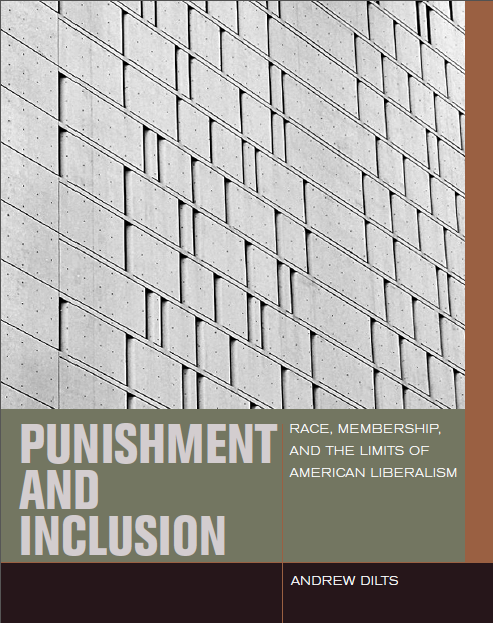
“At the start of the twenty-first century, 1 percent of the U.S. population is behind bars. An additional 3 percent is on parole or probation. In all but two states, incarcerated felons cannot vote, and in three states felon disenfranchisement is for life. More than 5 million adult Americans cannot vote because of a felony-class criminal conviction, meaning that more than 2 percent of otherwise eligible voters are stripped of their political rights. Nationally, fully a third of the disenfranchised are African American, effectively disenfranchising 8 percent of all African Americans in the United States. In Alabama, Kentucky, and Florida, one in every five adult African Americans cannot vote.
Punishment and Inclusion gives a theoretical and historical account of this pernicious practice of felon disenfranchisement, drawing widely on early modern political philosophy, continental and postcolonial political thought, critical race theory, feminist philosophy, disability theory, critical legal studies, and archival research into state constitutional conventions. It demonstrates that the history of felon disenfranchisement, rooted in postslavery restrictions on suffrage and the contemporaneous emergence of the modern “American” penal system, reveals the deep connections between two political institutions often thought to be separate, showing the work of membership done by the criminal punishment system and the work of punishment done by the electoral franchise.”
Buy it here.
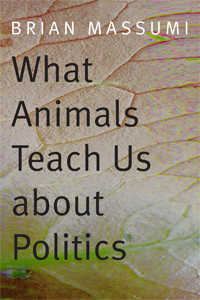
“In What Animals Teach Us about Politics, Brian Massumi takes up the question of “the animal.” By treating the human as animal, he develops a concept of an animal politics. His is not a human politics of the animal, but an integrally animal politics, freed from connotations of the “primitive” state of nature and the accompanying presuppositions about instinct permeating modern thought. Massumi integrates notions marginalized by the dominant currents in evolutionary biology, animal behavior, and philosophy—notions such as play, sympathy, and creativity—into the concept of nature. As he does so, his inquiry necessarily expands, encompassing not only animal behavior but also animal thought and its distance from, or proximity to, those capacities over which human animals claim a monopoly: language and reflexive consciousness. For Massumi, humans and animals exist on a continuum. Understanding that continuum, while accounting for difference, requires a new logic of “mutual inclusion.” Massumi finds the conceptual resources for this logic in the work of thinkers including Gregory Bateson, Henri Bergson, Gilbert Simondon, and Raymond Ruyer. This concise book intervenes in Deleuze studies, posthumanism, and animal studies, as well as areas of study as wide-ranging as affect theory, aesthetics, embodied cognition, political theory, process philosophy, the theory of play, and the thought of Alfred North Whitehead.”
Buy it here.
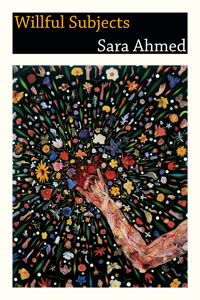 “In Willful Subjects
Sara Ahmed explores willfulness as a charge often made by some against
others. One history of will is a history of attempts to eliminate
willfulness from the will. Delving into philosophical and literary
texts, Ahmed examines the relation between will and willfulness, ill
will and good will, and the particular will and general will. Her
reflections shed light on how will is embedded in a political and
cultural landscape, how it is embodied, and how will and willfulness are
socially mediated. Attentive to the wayward, the wandering, and the
deviant, Ahmed considers how willfulness is taken up by those who have
received its charge. Grounded in feminist, queer, and antiracist
politics, her sui generis analysis of the willful subject, the figure
who wills wrongly or wills too much, suggests that willfulness might be
required to recover from the attempt at its elimination.”
“In Willful Subjects
Sara Ahmed explores willfulness as a charge often made by some against
others. One history of will is a history of attempts to eliminate
willfulness from the will. Delving into philosophical and literary
texts, Ahmed examines the relation between will and willfulness, ill
will and good will, and the particular will and general will. Her
reflections shed light on how will is embedded in a political and
cultural landscape, how it is embodied, and how will and willfulness are
socially mediated. Attentive to the wayward, the wandering, and the
deviant, Ahmed considers how willfulness is taken up by those who have
received its charge. Grounded in feminist, queer, and antiracist
politics, her sui generis analysis of the willful subject, the figure
who wills wrongly or wills too much, suggests that willfulness might be
required to recover from the attempt at its elimination.”
Buy it here.
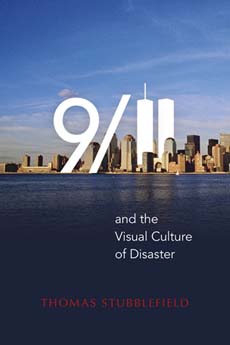
“The day the towers fell, indelible images of plummeting rubble, fire, and falling bodies were imprinted in the memories of people around the world. Images that were caught in the media loop after the disaster and coverage of the attack, its aftermath, and the wars that followed reflected a pervasive tendency to treat these tragic events as spectacle. Though the collapse of the World Trade Center was “the most photographed disaster in history,” it failed to yield a single noteworthy image of carnage. Thomas Stubblefield argues that the absence within these spectacular images is the paradox of 9/11 visual culture, which foregrounds the visual experience as it obscures the event in absence, erasure, and invisibility. From the spectral presence of the Tribute in Light to Art Spiegelman’s nearly blank New Yorker cover, and from the elimination of the Twin Towers from television shows and films to the monumental cavities of Michael Arad’s 9/11 memorial, the void became the visual shorthand for the incident. By examining configurations of invisibility and erasure across the media of photography, film, monuments, graphic novels, and digital representation, Stubblefield interprets the post-9/11 presence of absence as the reaffirmation of national identity that implicitly laid the groundwork for the impending invasions of Iraq and Afghanistan.”
Buy it here.
#89 Starve and Immolate
By Banu Bargu
“Starve and Immolate tells the story of leftist political prisoners in Turkey who waged a deadly struggle against the introduction of high security prisons by forging their lives into weapons. Weaving together contemporary and critical political theory with political ethnography, Banu Bargu analyzes the death fast struggle as an exemplary though not exceptional instance of self-destructive practices that are a consequence of, retort to, and refusal of the increasingly biopolitical forms of sovereign power deployed around the globe.
Bargu chronicles the experiences, rituals, values, beliefs, ideological self-representations, and contentions of the protestors who fought cellular confinement against the background of the history of Turkish democracy and the treatment of dissent in a country where prisons have become sites of political confrontation. A critical response to Michel Foucault’s Discipline and Punish, Starve and Immolate centers on new forms of struggle that arise from the asymmetric antagonism between the state and its contestants in the contemporary prison. Bargu ultimately positions the weaponization of life as a bleak, violent, and ambivalent form of insurgent politics that seeks to wrench the power of life and death away from the modern state on corporeal grounds and in increasingly theologized forms. Drawing attention to the existential commitment, sacrificial morality, and militant martyrdom that transforms these struggles into a complex amalgam of resistance, Bargu explores the global ramifications of human weapons’ practices of resistance, their possibilities and limitations.”
Buy it here.
#90 Seventeen Contradictions and the End of Capitalism
By David Harvey
“In Seventeen Contradictions and the End of Capitalism, the eminent scholar David Harvey, author of A Brief History of Neoliberalism, examines the internal contradictions within the flow of capital that have precipitated recent crises. He contends that while the contradictions have made capitalism flexible and resilient, they also contain the seeds of systemic catastrophe. Many of the contradictions are manageable, but some are fatal: the stress on endless compound growth, the necessity to exploit nature to its limits, and tendency toward universal alienation. Capitalism has always managed to extend the outer limits through “spatial fixes,” expanding the geography of the system to cover nations and people formerly outside of its range. Whether it can continue to expand is an open question, but Harvey thinks it unlikely in the medium term future: the limits cannot extend much further, and the recent financial crisis is a harbinger of this.”
Buy it here.
#91 Punishment and Inclusion
By Andrew Dilts
“At the start of the twenty-first century, 1 percent of the U.S. population is behind bars. An additional 3 percent is on parole or probation. In all but two states, incarcerated felons cannot vote, and in three states felon disenfranchisement is for life. More than 5 million adult Americans cannot vote because of a felony-class criminal conviction, meaning that more than 2 percent of otherwise eligible voters are stripped of their political rights. Nationally, fully a third of the disenfranchised are African American, effectively disenfranchising 8 percent of all African Americans in the United States. In Alabama, Kentucky, and Florida, one in every five adult African Americans cannot vote.
Punishment and Inclusion gives a theoretical and historical account of this pernicious practice of felon disenfranchisement, drawing widely on early modern political philosophy, continental and postcolonial political thought, critical race theory, feminist philosophy, disability theory, critical legal studies, and archival research into state constitutional conventions. It demonstrates that the history of felon disenfranchisement, rooted in postslavery restrictions on suffrage and the contemporaneous emergence of the modern “American” penal system, reveals the deep connections between two political institutions often thought to be separate, showing the work of membership done by the criminal punishment system and the work of punishment done by the electoral franchise.”
Buy it here.
#92 What Animals Teach Us About Politics

“In What Animals Teach Us about Politics, Brian Massumi takes up the question of “the animal.” By treating the human as animal, he develops a concept of an animal politics. His is not a human politics of the animal, but an integrally animal politics, freed from connotations of the “primitive” state of nature and the accompanying presuppositions about instinct permeating modern thought. Massumi integrates notions marginalized by the dominant currents in evolutionary biology, animal behavior, and philosophy—notions such as play, sympathy, and creativity—into the concept of nature. As he does so, his inquiry necessarily expands, encompassing not only animal behavior but also animal thought and its distance from, or proximity to, those capacities over which human animals claim a monopoly: language and reflexive consciousness. For Massumi, humans and animals exist on a continuum. Understanding that continuum, while accounting for difference, requires a new logic of “mutual inclusion.” Massumi finds the conceptual resources for this logic in the work of thinkers including Gregory Bateson, Henri Bergson, Gilbert Simondon, and Raymond Ruyer. This concise book intervenes in Deleuze studies, posthumanism, and animal studies, as well as areas of study as wide-ranging as affect theory, aesthetics, embodied cognition, political theory, process philosophy, the theory of play, and the thought of Alfred North Whitehead.”
Buy it here.
#93 Willful Subjects
Sarah Ahmed “In Willful Subjects
Sara Ahmed explores willfulness as a charge often made by some against
others. One history of will is a history of attempts to eliminate
willfulness from the will. Delving into philosophical and literary
texts, Ahmed examines the relation between will and willfulness, ill
will and good will, and the particular will and general will. Her
reflections shed light on how will is embedded in a political and
cultural landscape, how it is embodied, and how will and willfulness are
socially mediated. Attentive to the wayward, the wandering, and the
deviant, Ahmed considers how willfulness is taken up by those who have
received its charge. Grounded in feminist, queer, and antiracist
politics, her sui generis analysis of the willful subject, the figure
who wills wrongly or wills too much, suggests that willfulness might be
required to recover from the attempt at its elimination.”
“In Willful Subjects
Sara Ahmed explores willfulness as a charge often made by some against
others. One history of will is a history of attempts to eliminate
willfulness from the will. Delving into philosophical and literary
texts, Ahmed examines the relation between will and willfulness, ill
will and good will, and the particular will and general will. Her
reflections shed light on how will is embedded in a political and
cultural landscape, how it is embodied, and how will and willfulness are
socially mediated. Attentive to the wayward, the wandering, and the
deviant, Ahmed considers how willfulness is taken up by those who have
received its charge. Grounded in feminist, queer, and antiracist
politics, her sui generis analysis of the willful subject, the figure
who wills wrongly or wills too much, suggests that willfulness might be
required to recover from the attempt at its elimination.”Buy it here.
#94 9/11 and the Visual Culture of Disaster

“The day the towers fell, indelible images of plummeting rubble, fire, and falling bodies were imprinted in the memories of people around the world. Images that were caught in the media loop after the disaster and coverage of the attack, its aftermath, and the wars that followed reflected a pervasive tendency to treat these tragic events as spectacle. Though the collapse of the World Trade Center was “the most photographed disaster in history,” it failed to yield a single noteworthy image of carnage. Thomas Stubblefield argues that the absence within these spectacular images is the paradox of 9/11 visual culture, which foregrounds the visual experience as it obscures the event in absence, erasure, and invisibility. From the spectral presence of the Tribute in Light to Art Spiegelman’s nearly blank New Yorker cover, and from the elimination of the Twin Towers from television shows and films to the monumental cavities of Michael Arad’s 9/11 memorial, the void became the visual shorthand for the incident. By examining configurations of invisibility and erasure across the media of photography, film, monuments, graphic novels, and digital representation, Stubblefield interprets the post-9/11 presence of absence as the reaffirmation of national identity that implicitly laid the groundwork for the impending invasions of Iraq and Afghanistan.”
Buy it here.
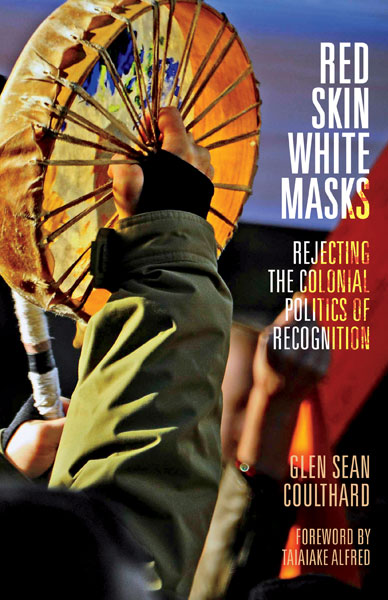
Nema komentara:
Objavi komentar